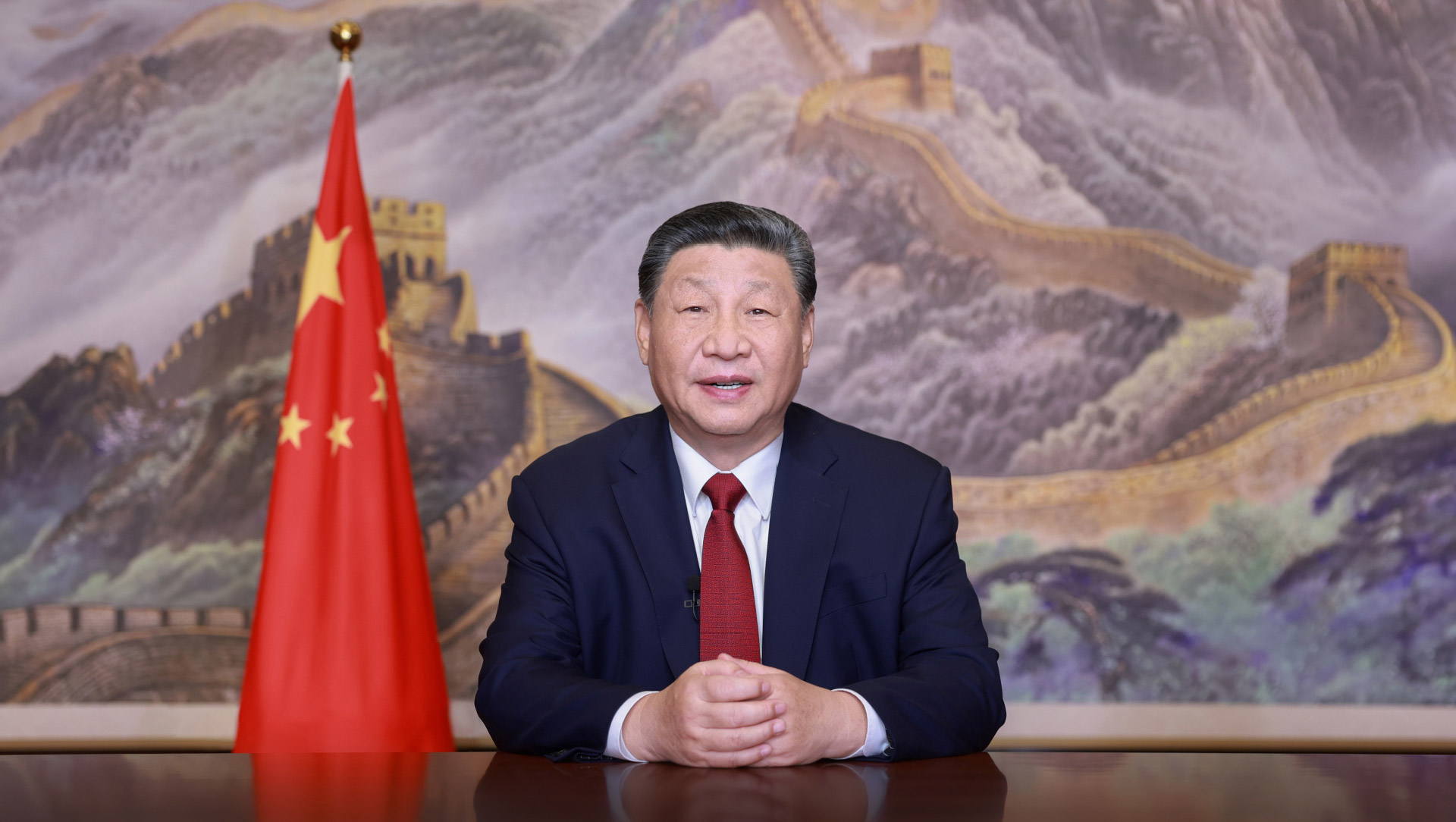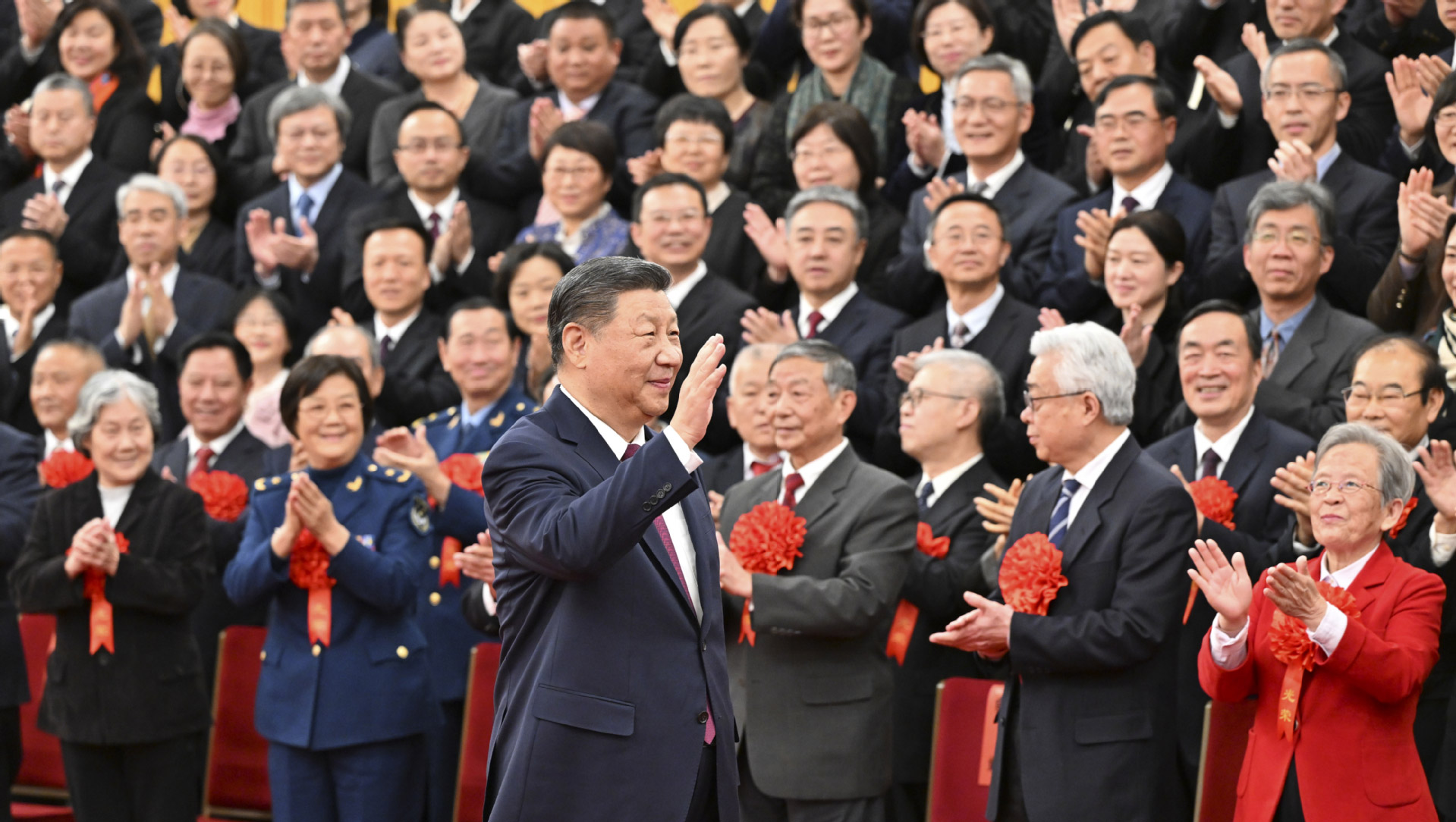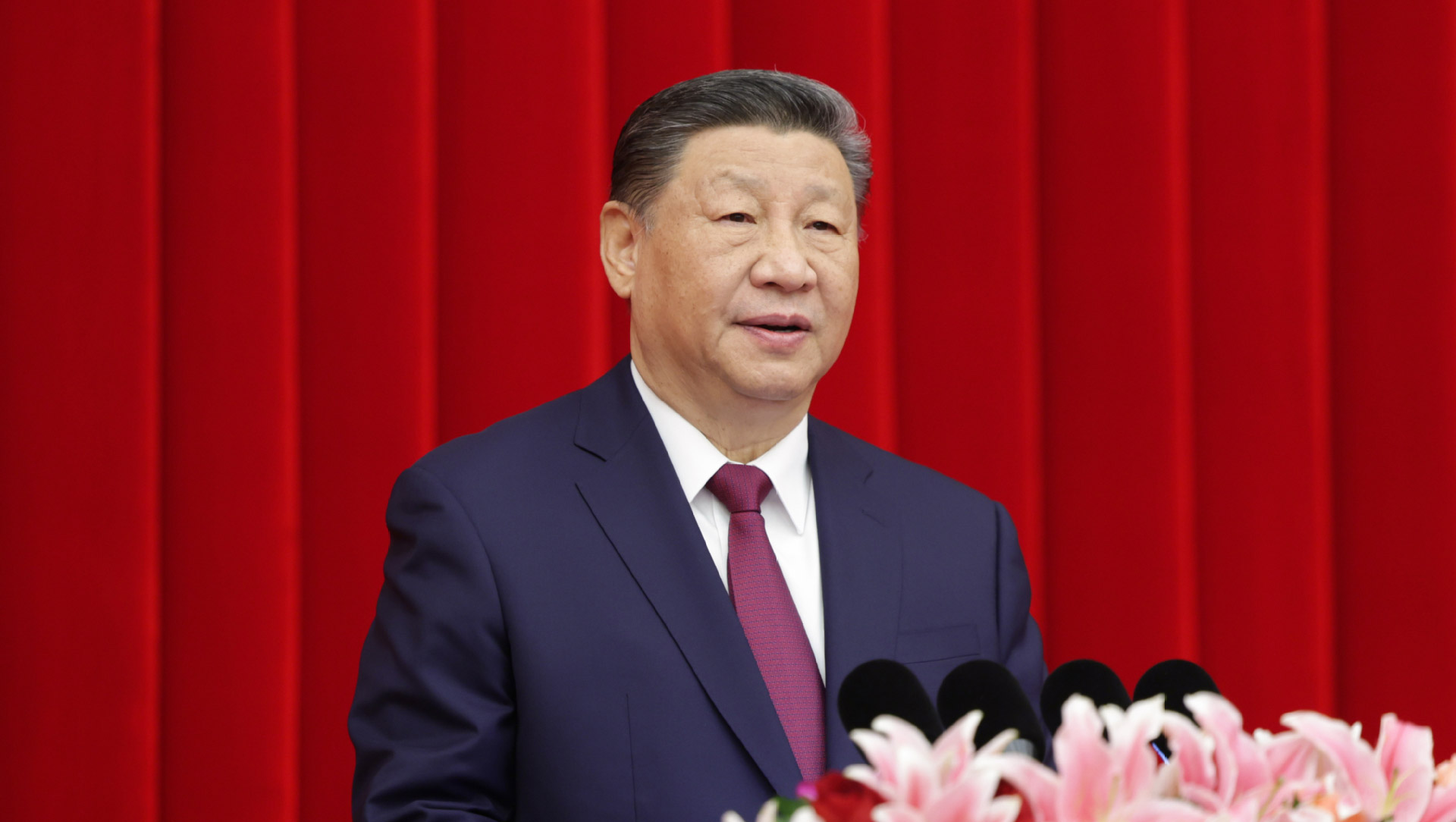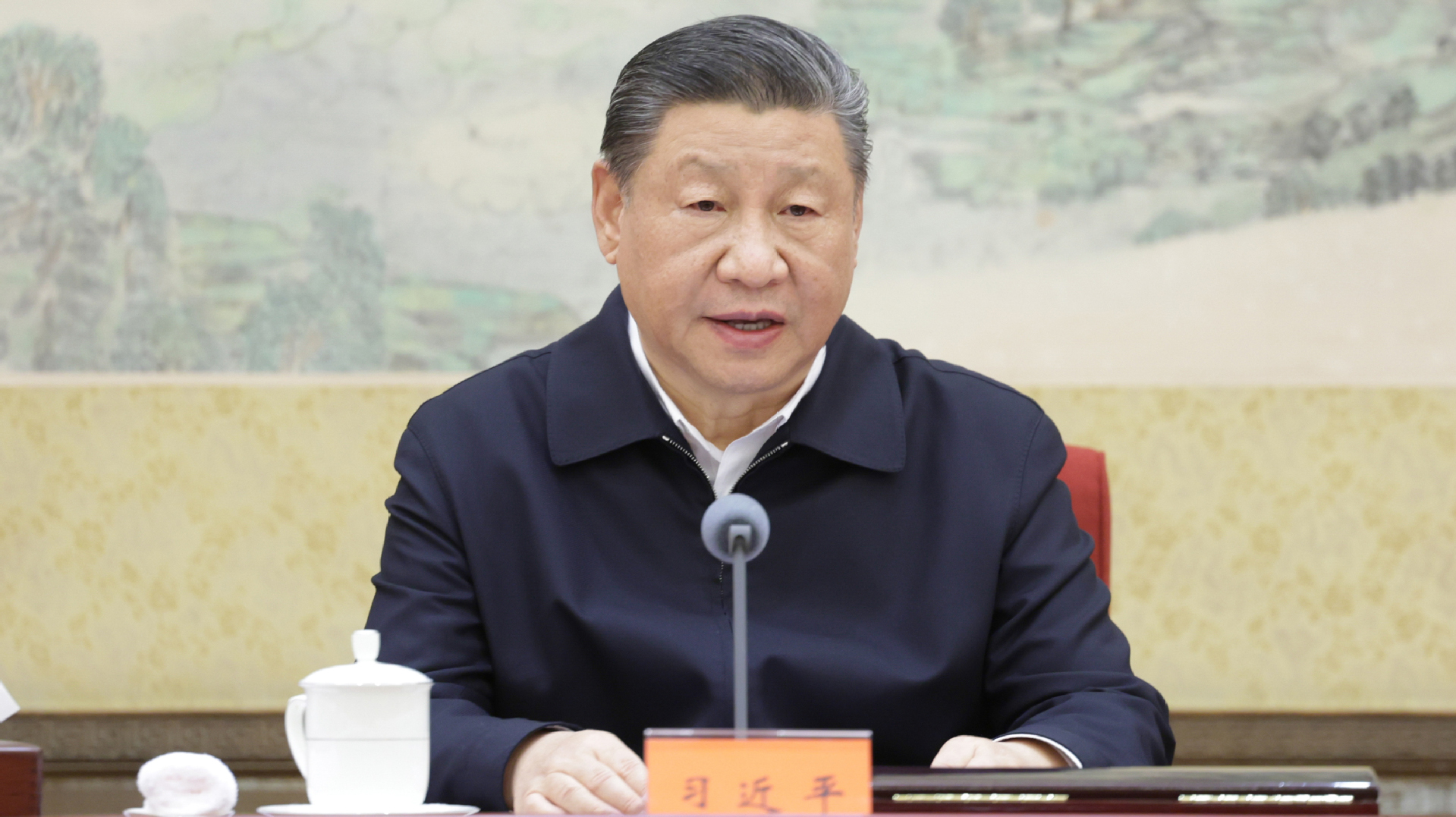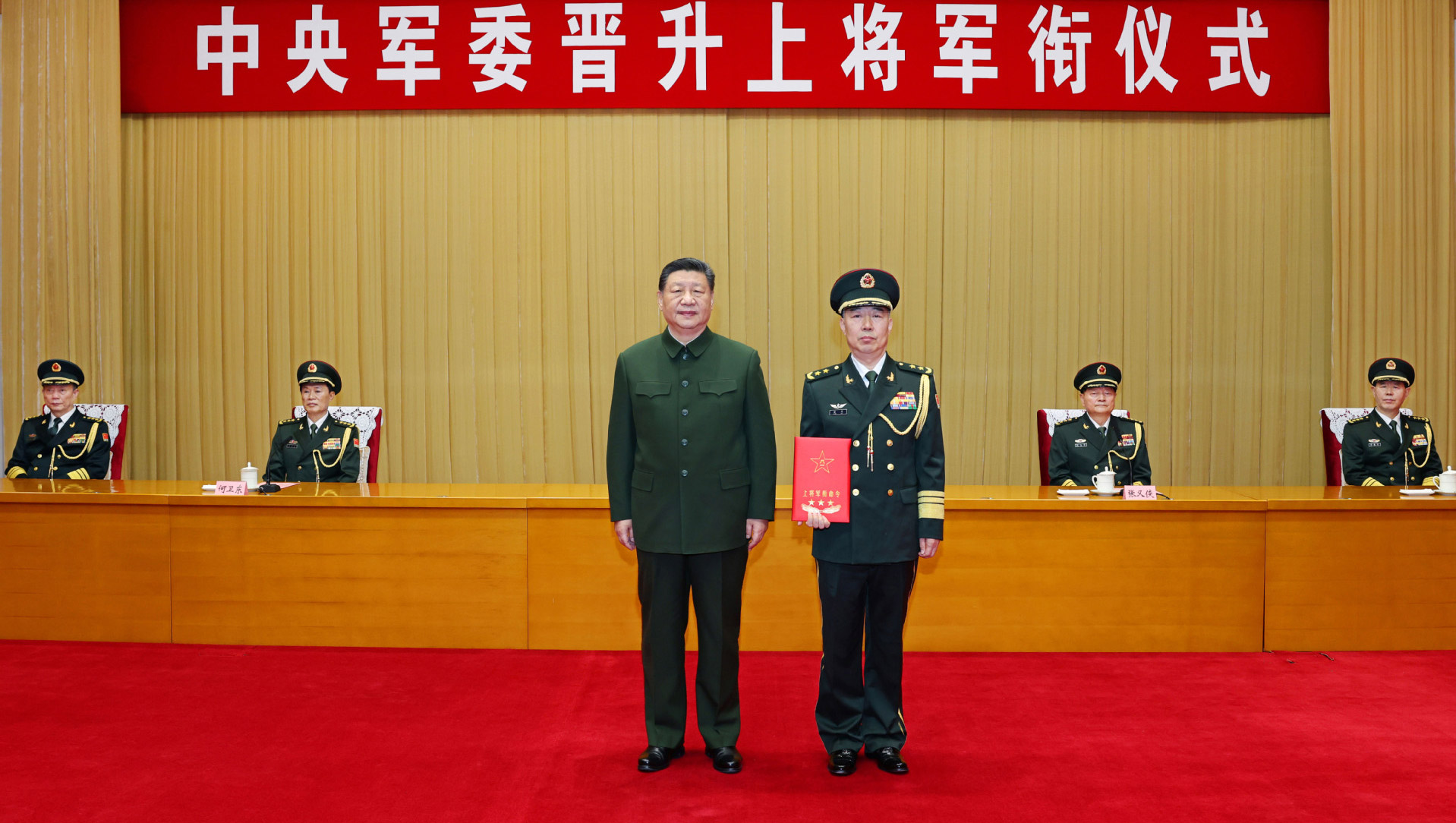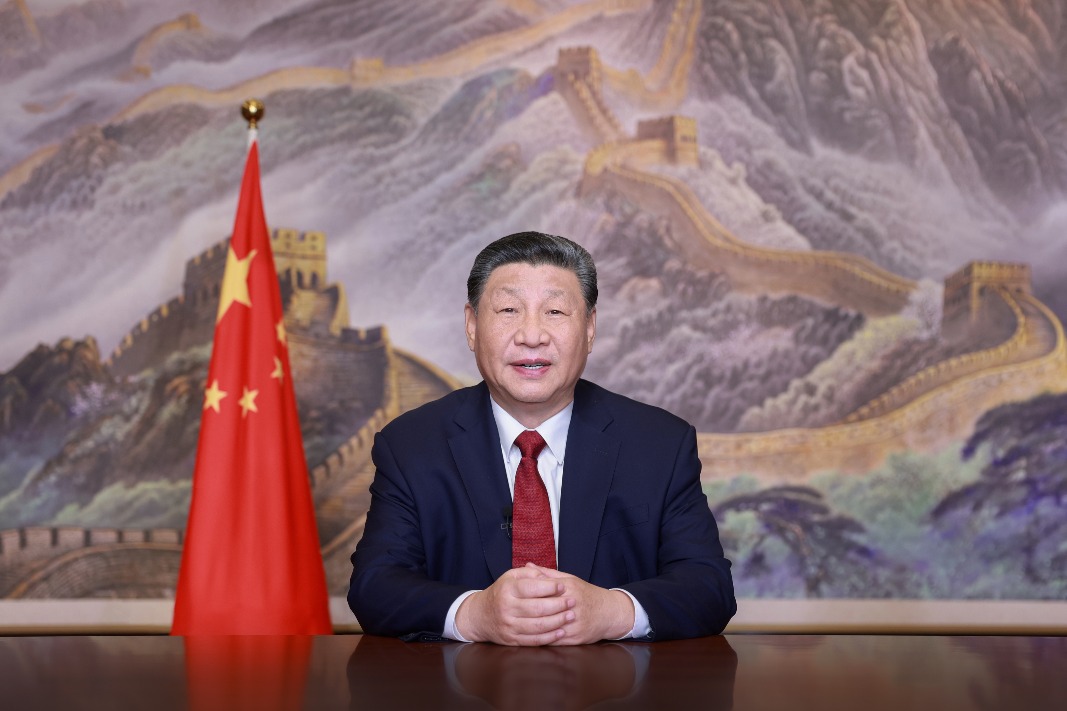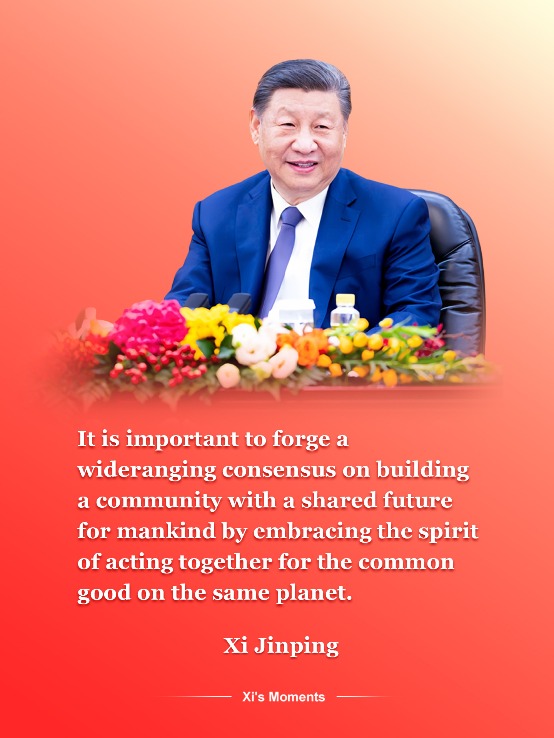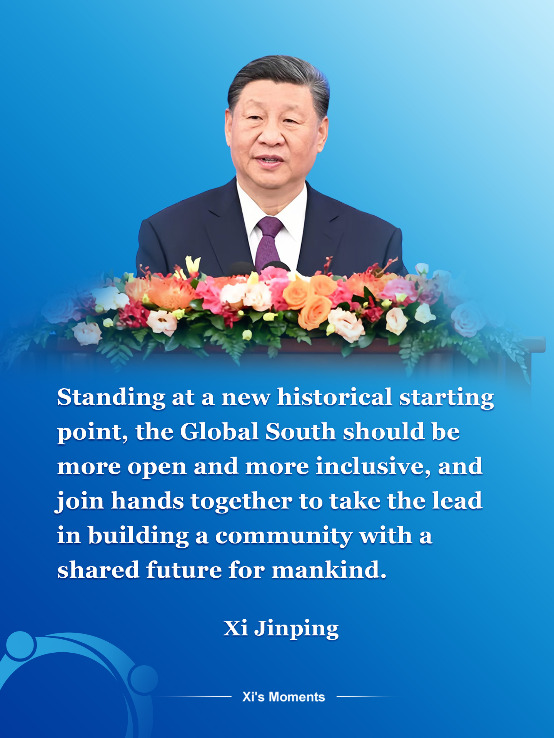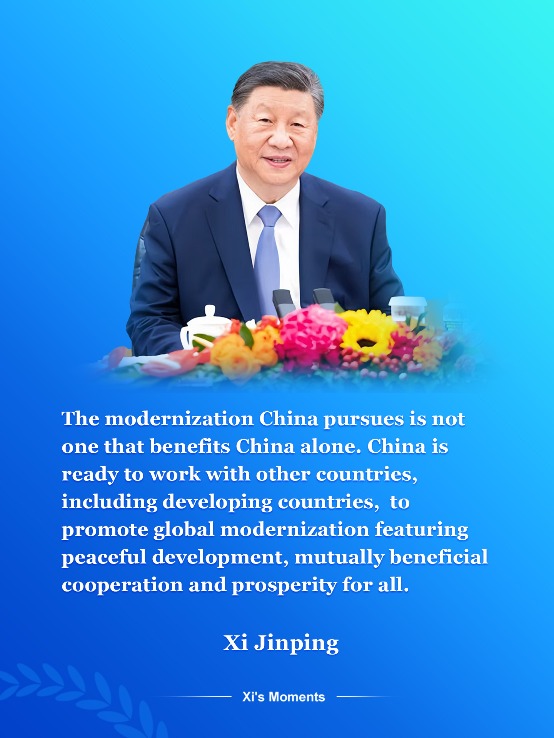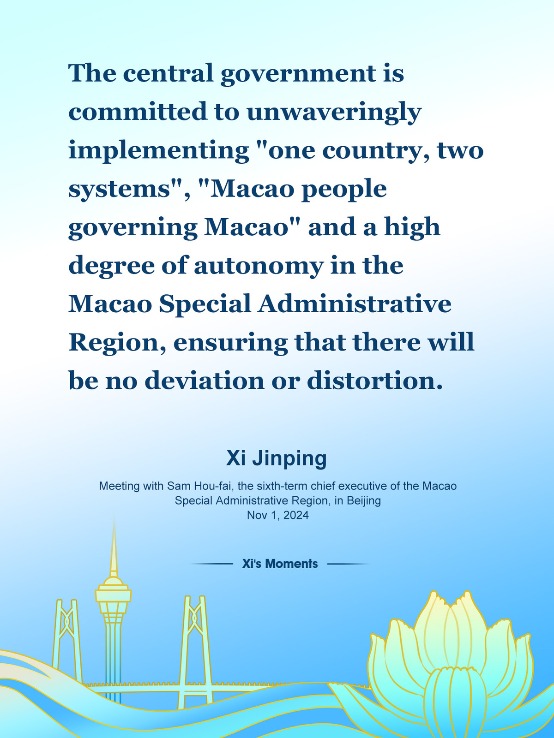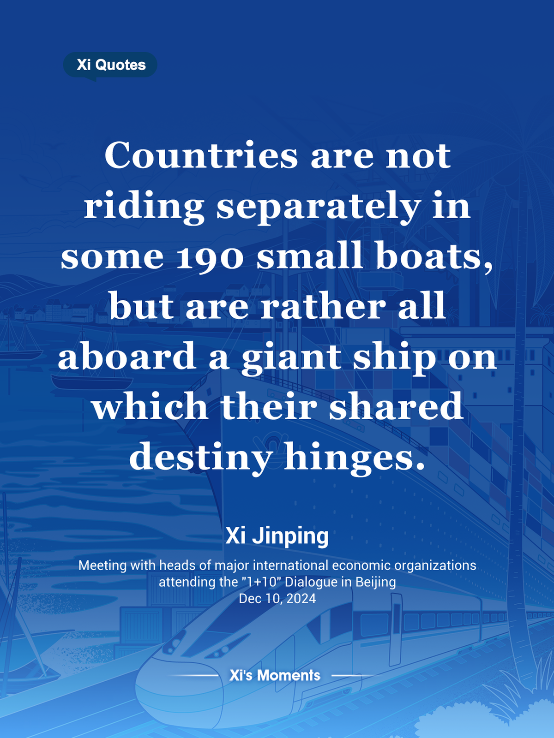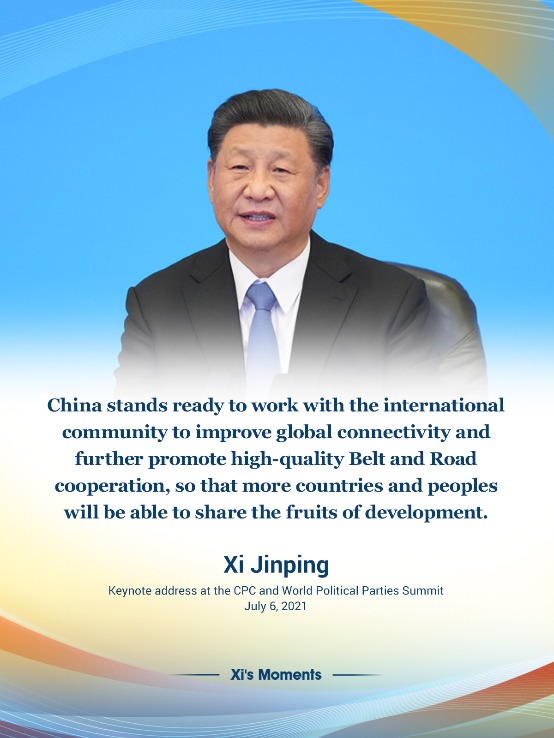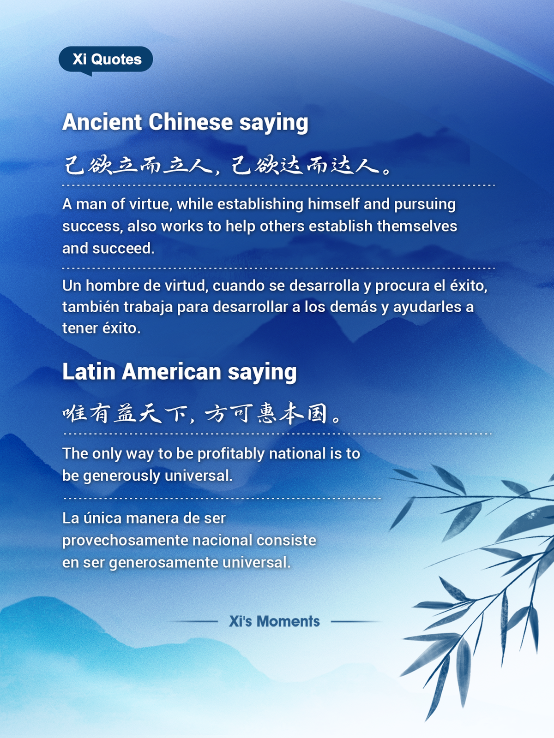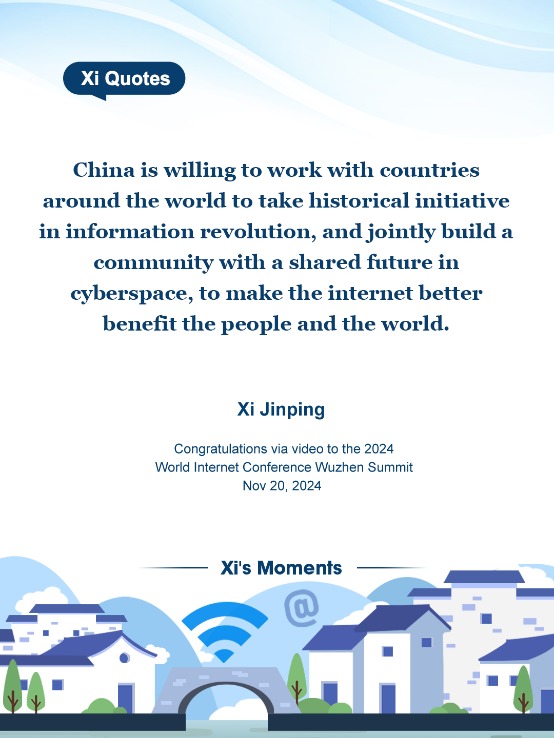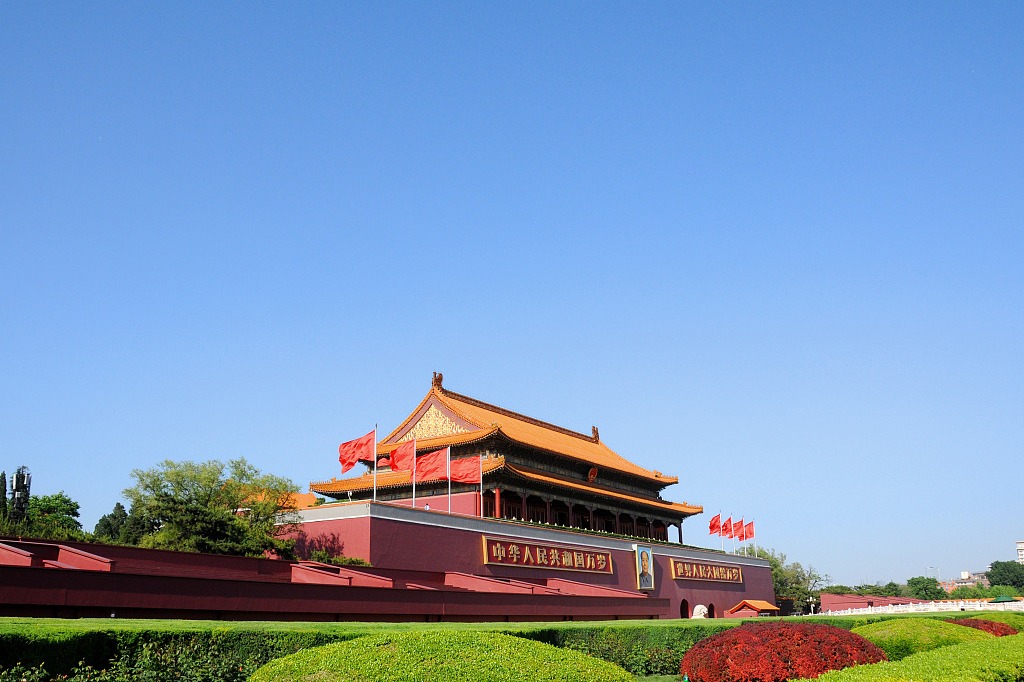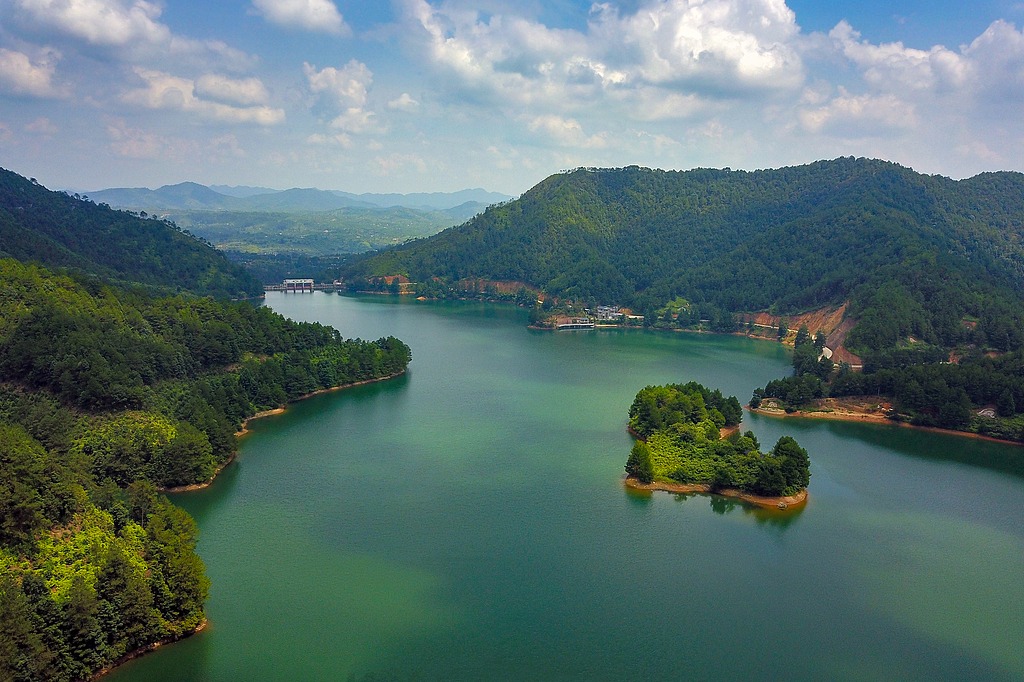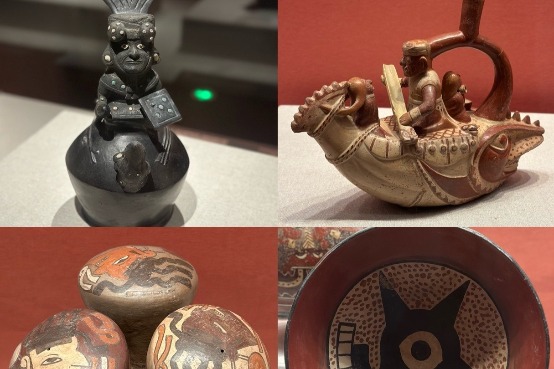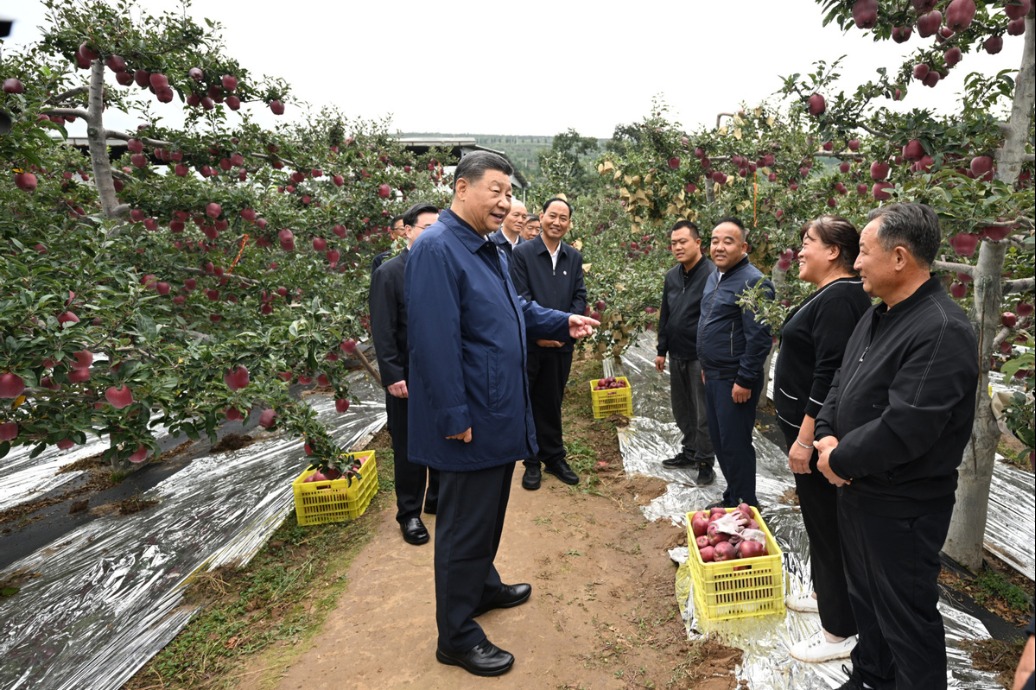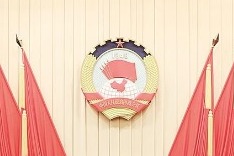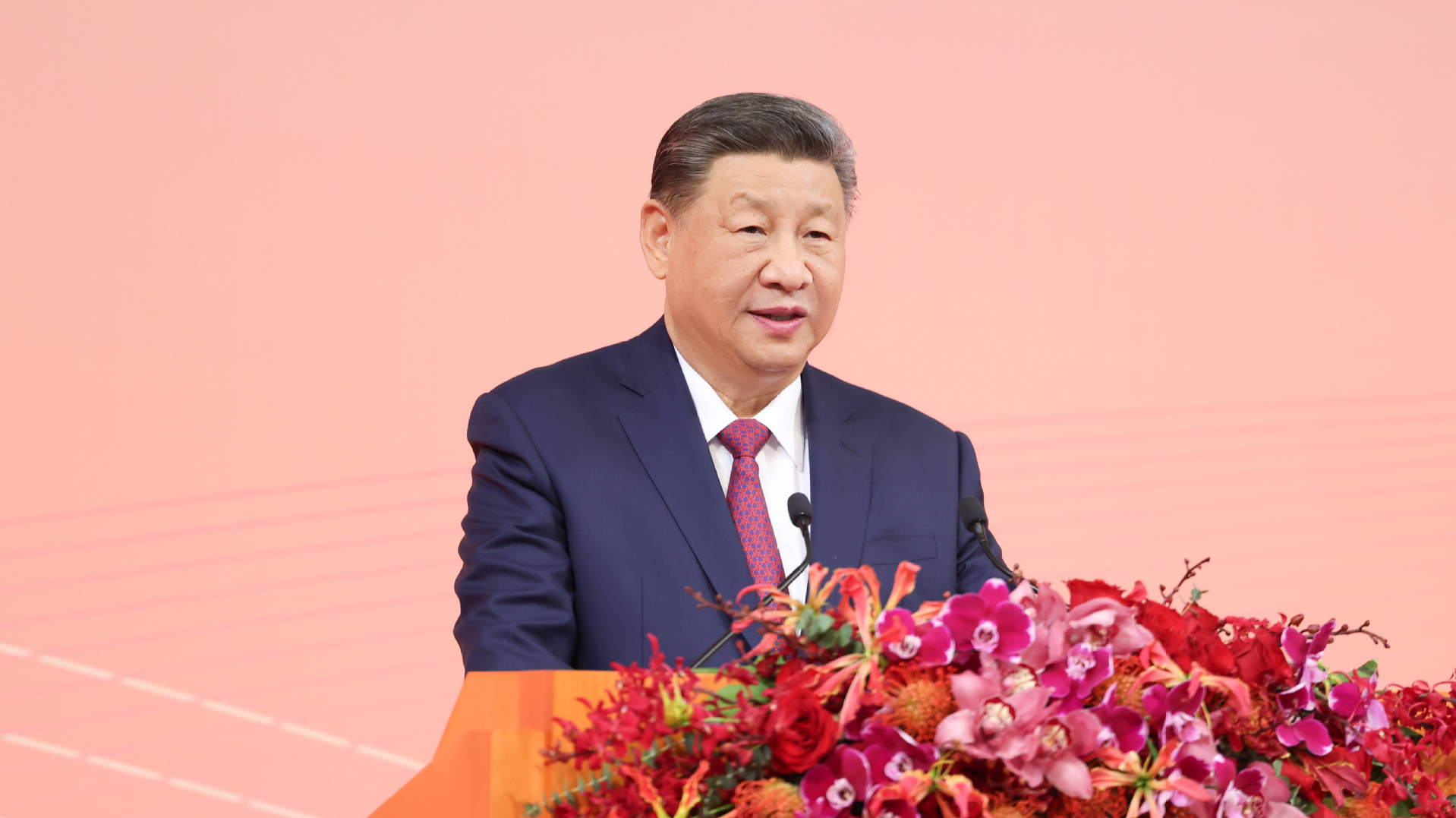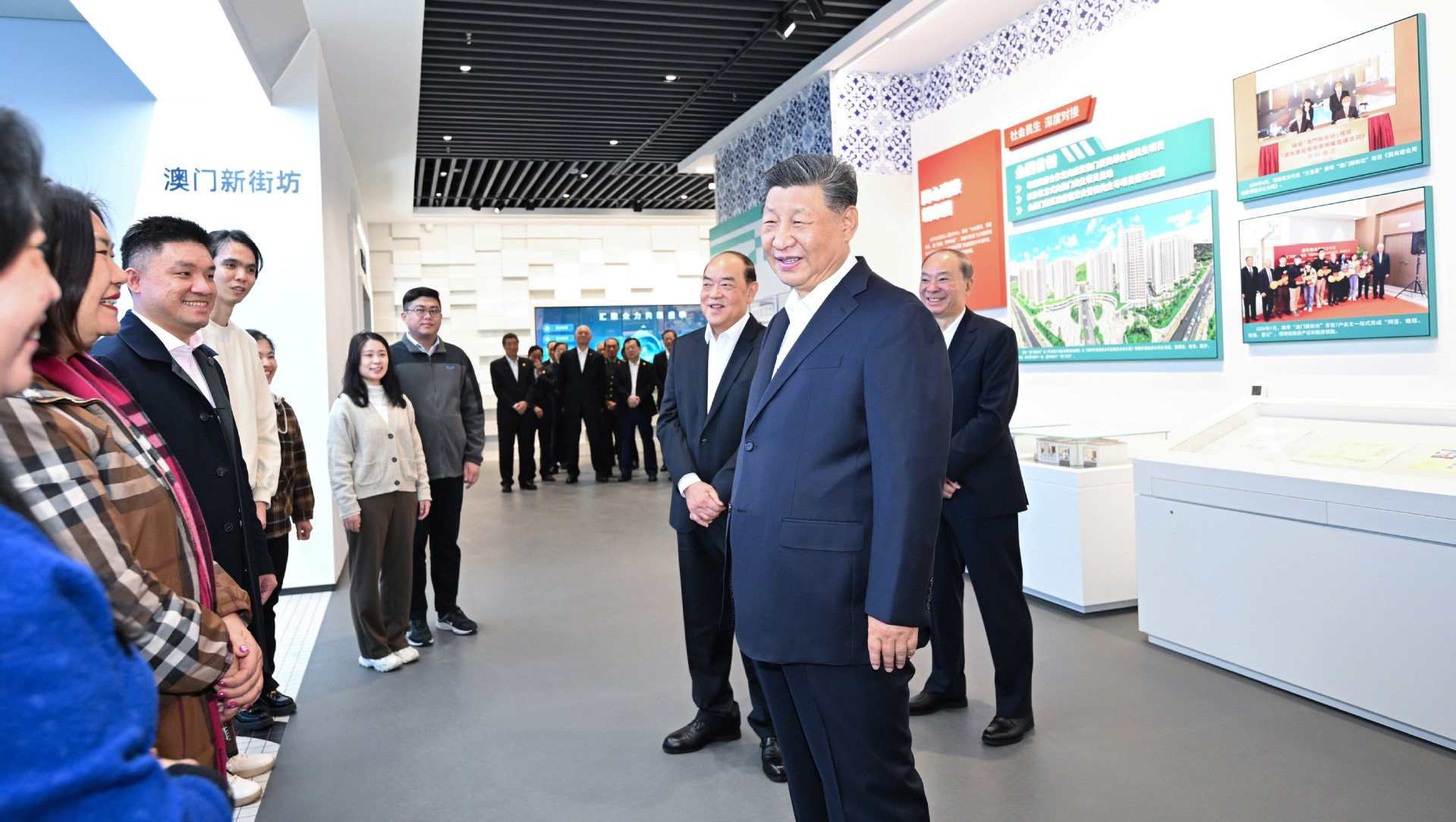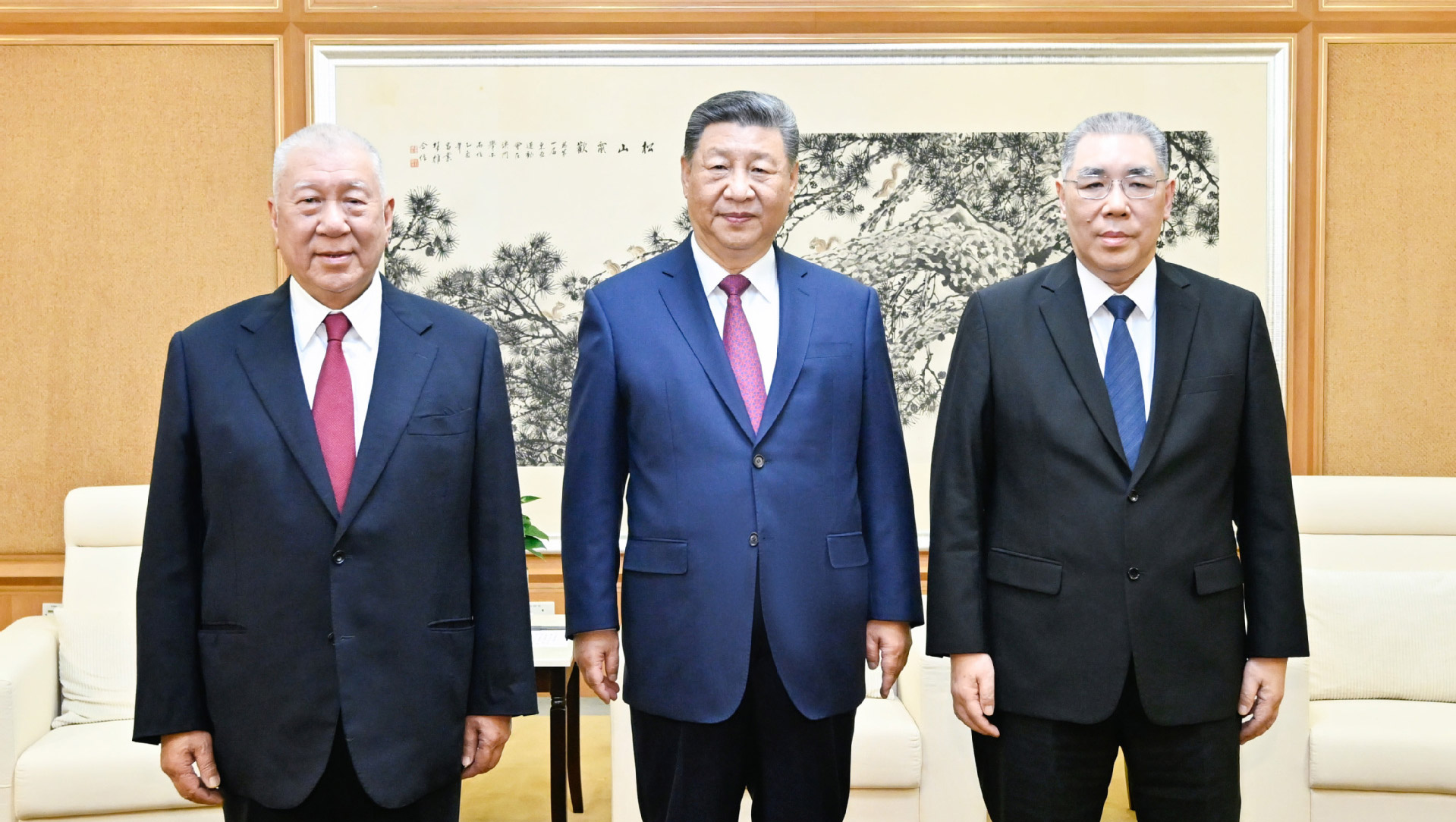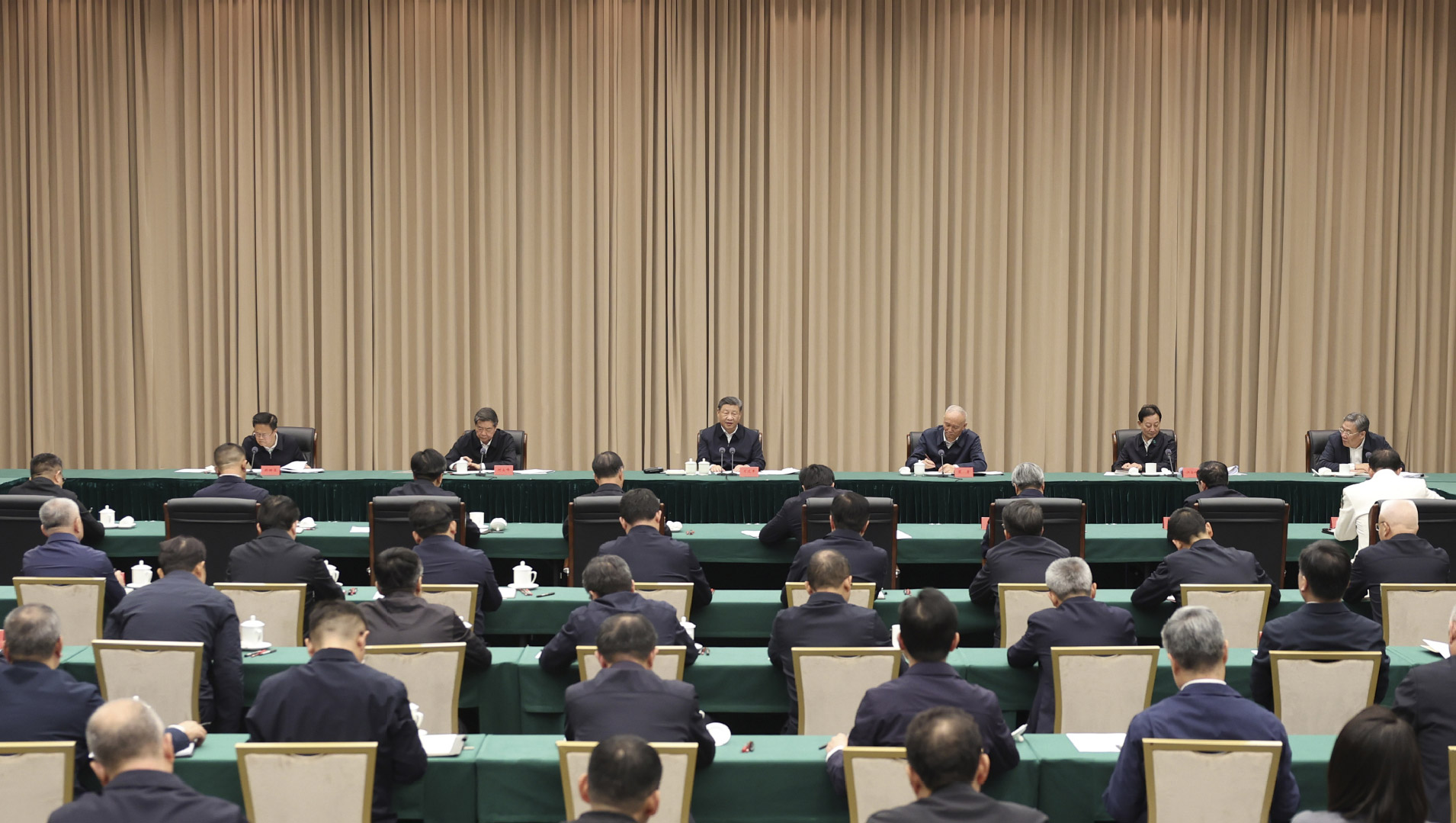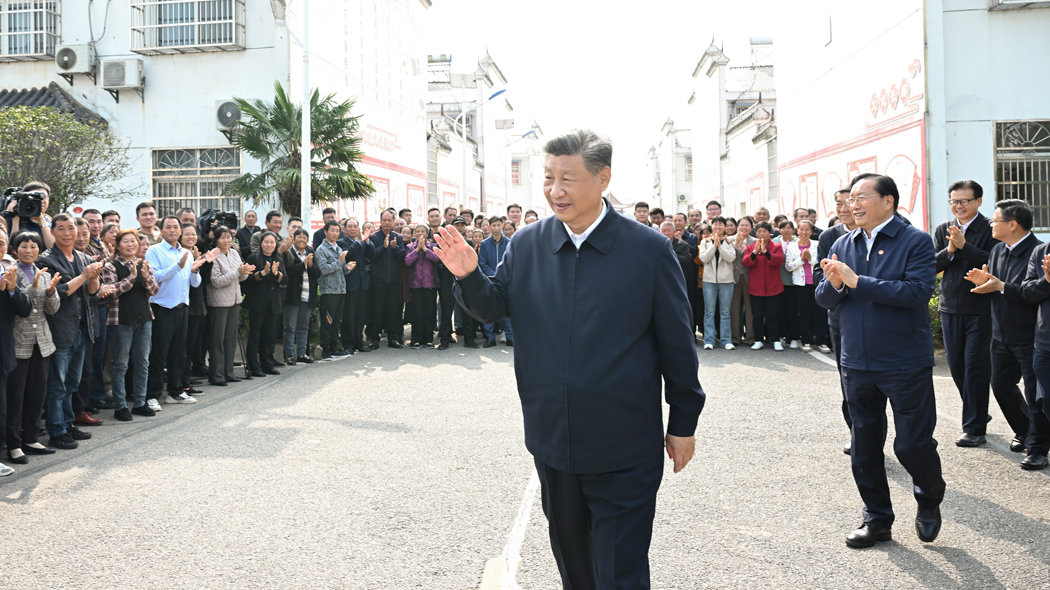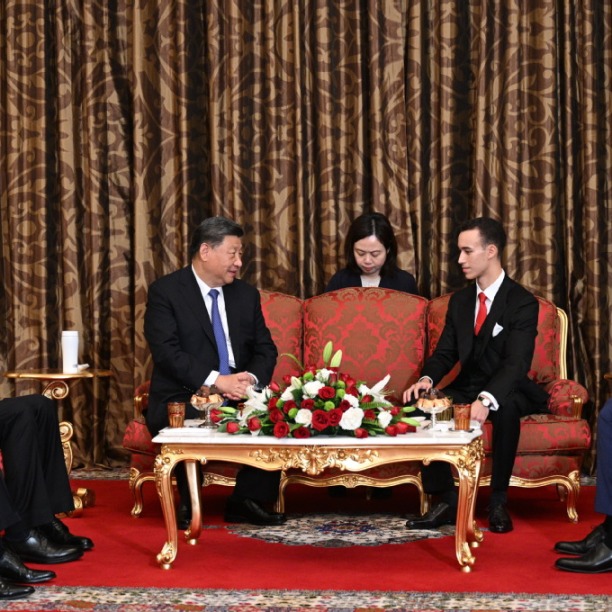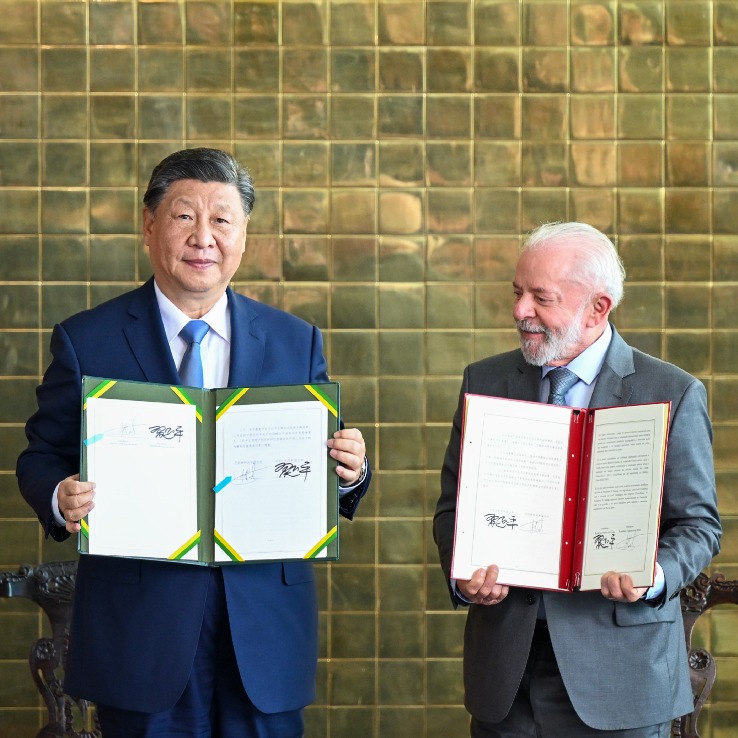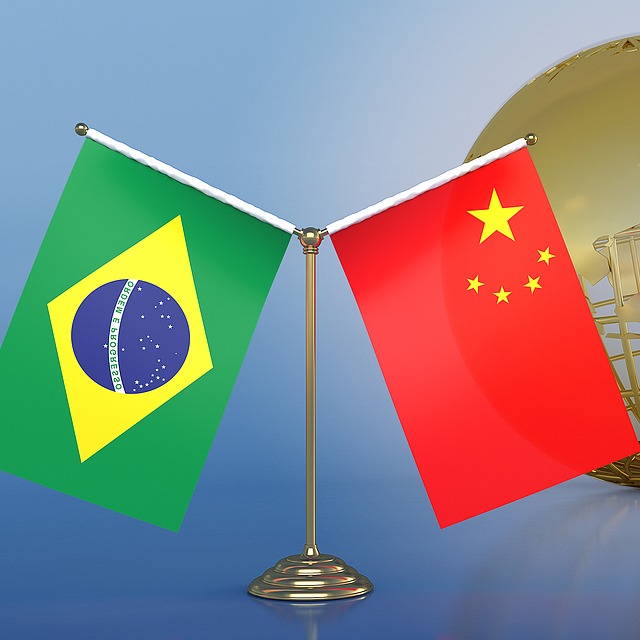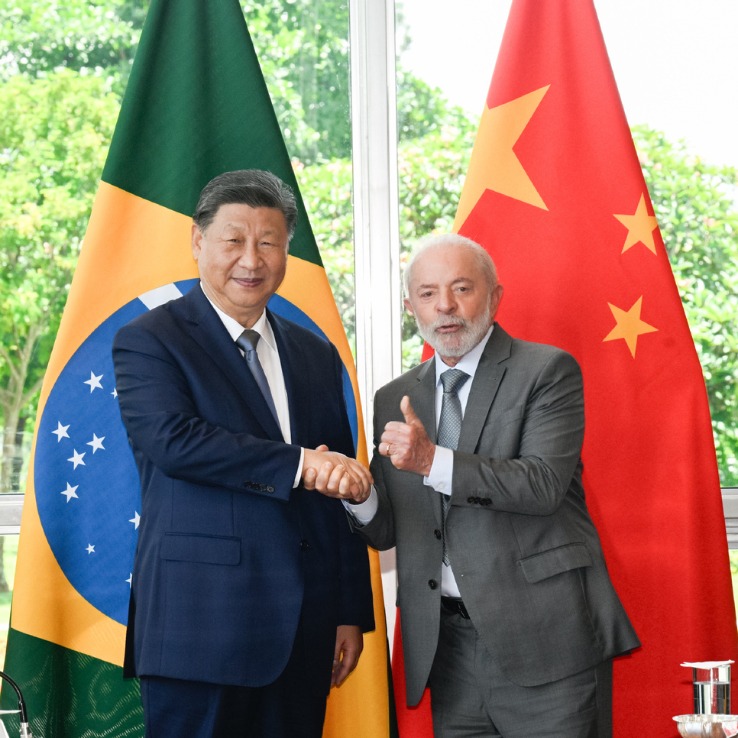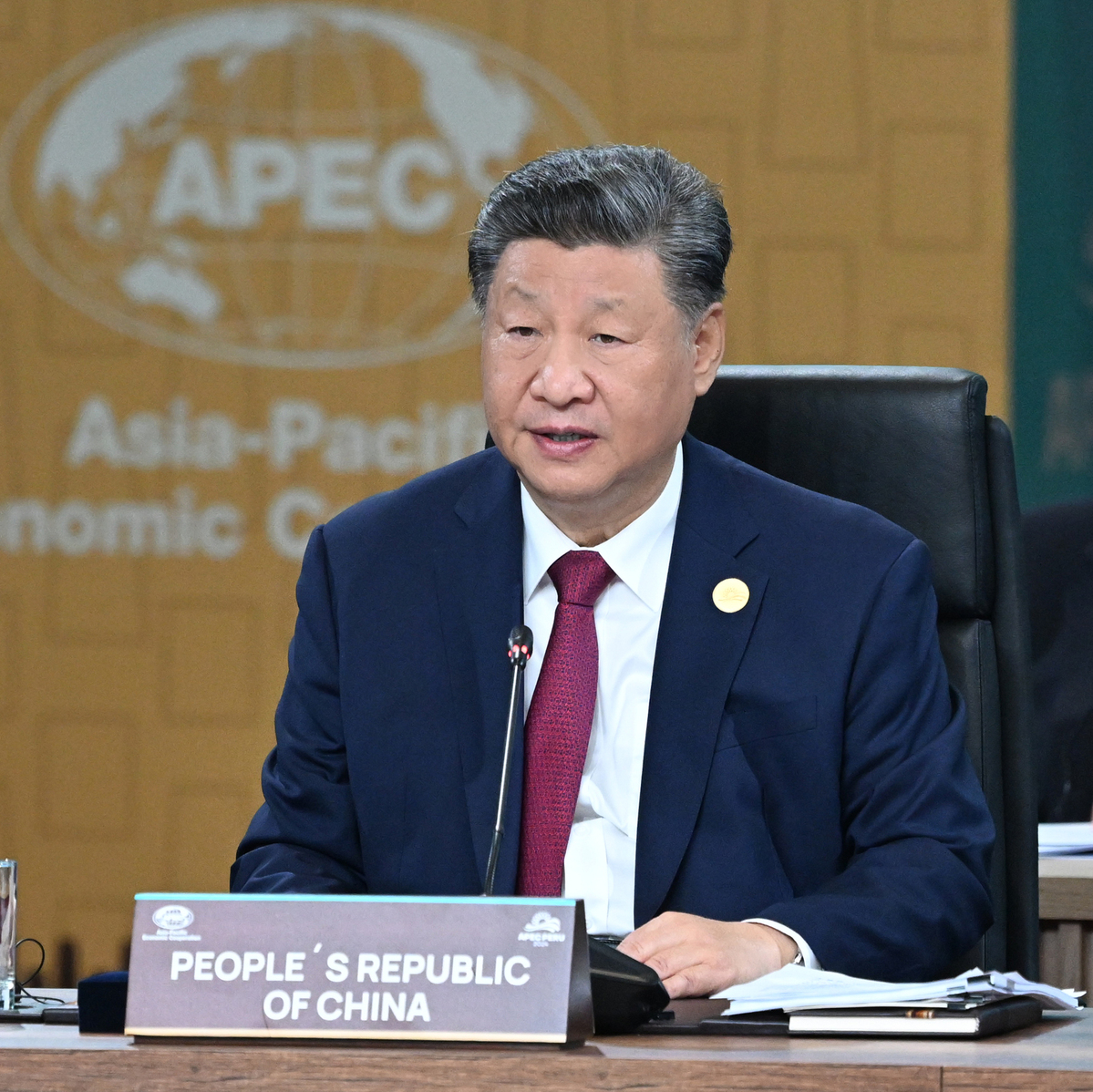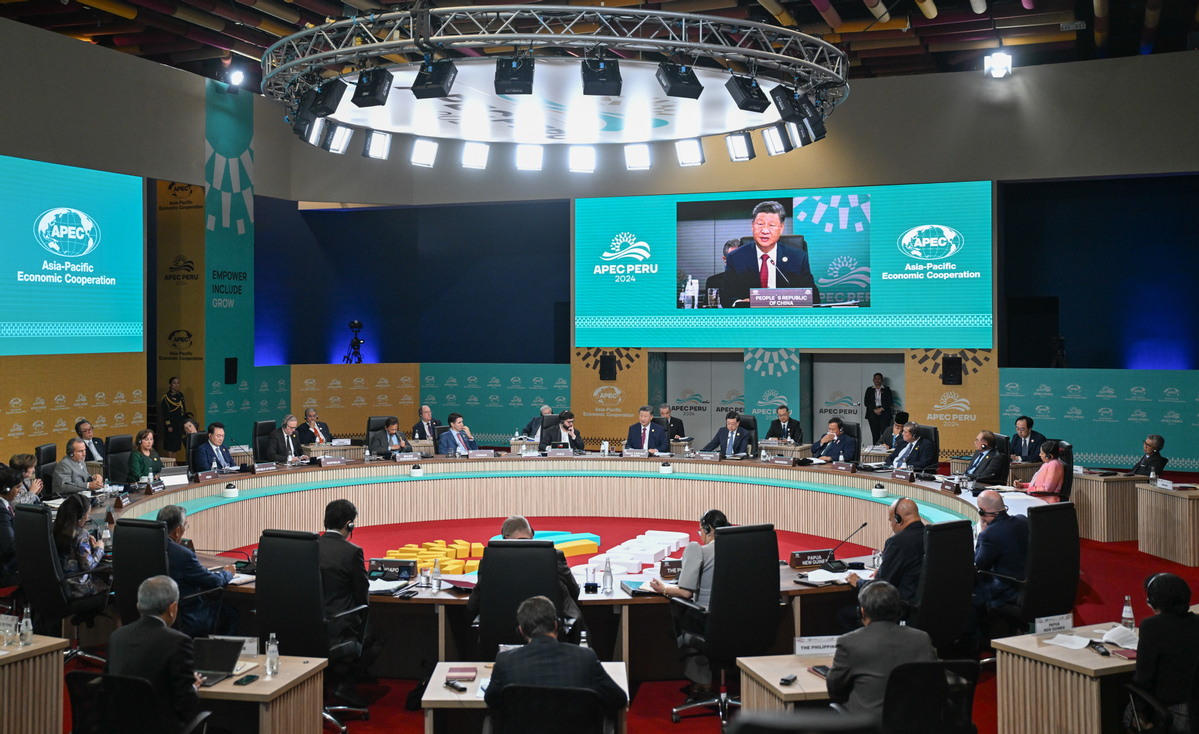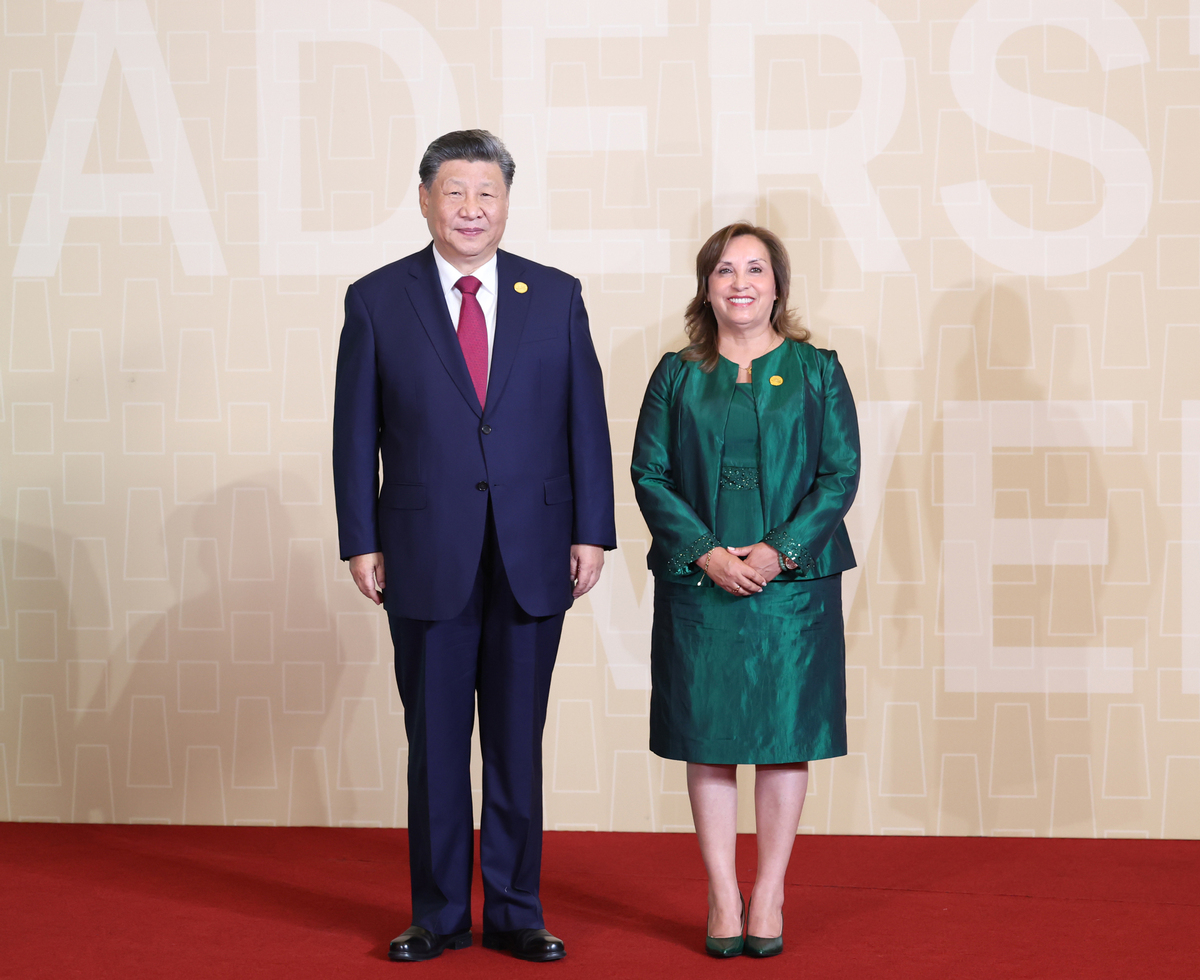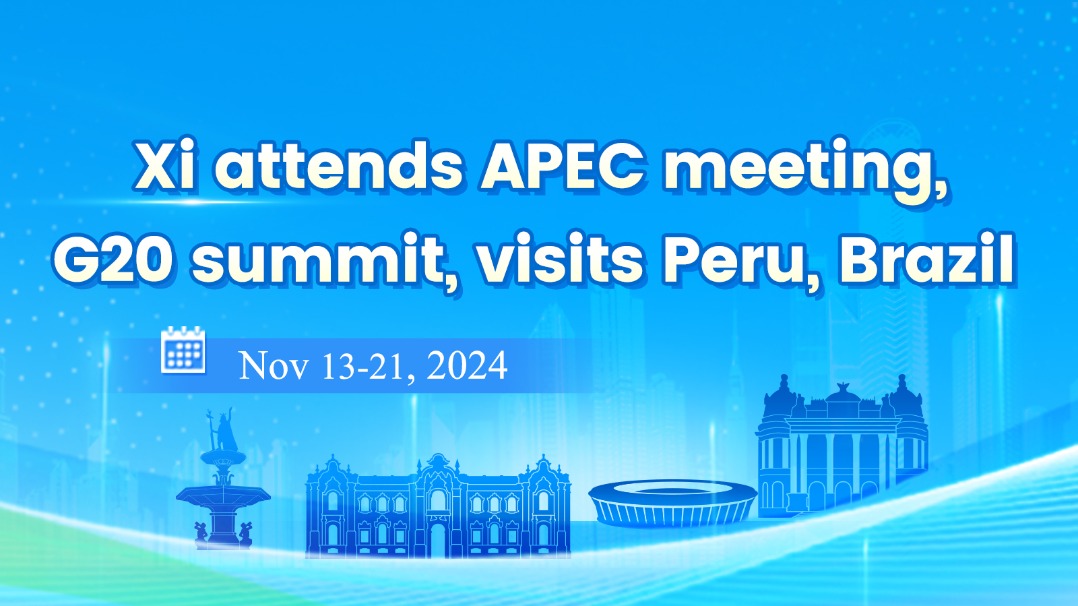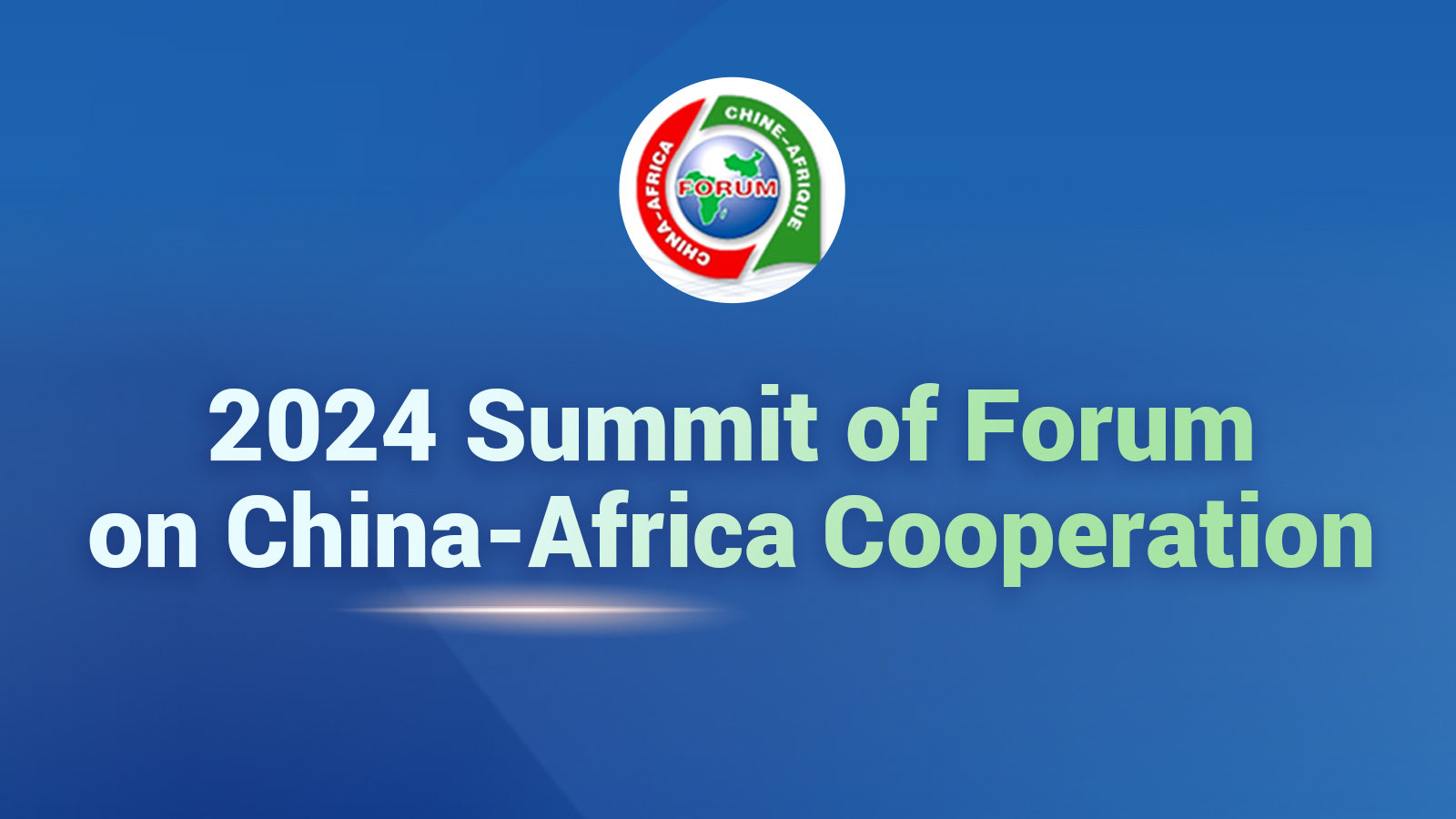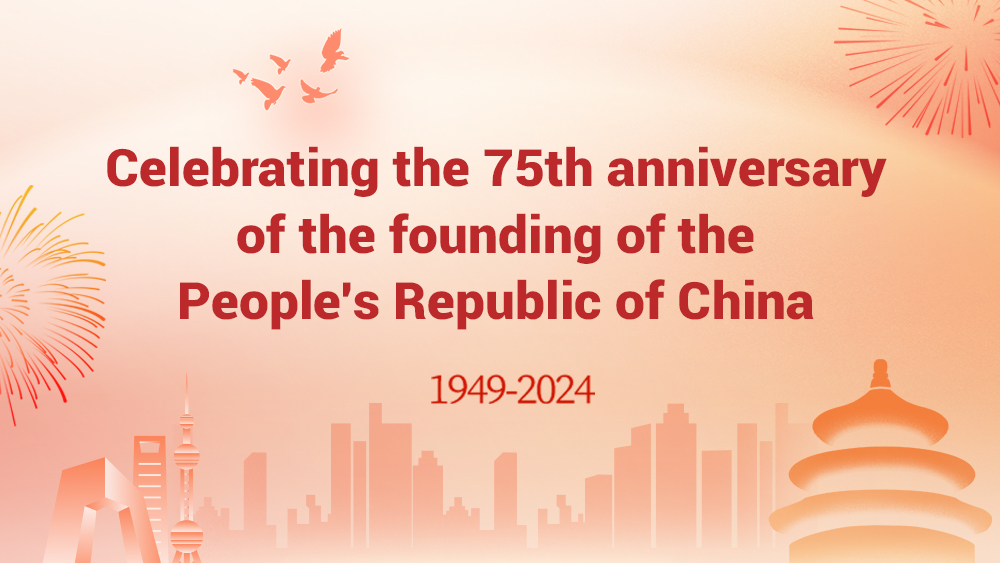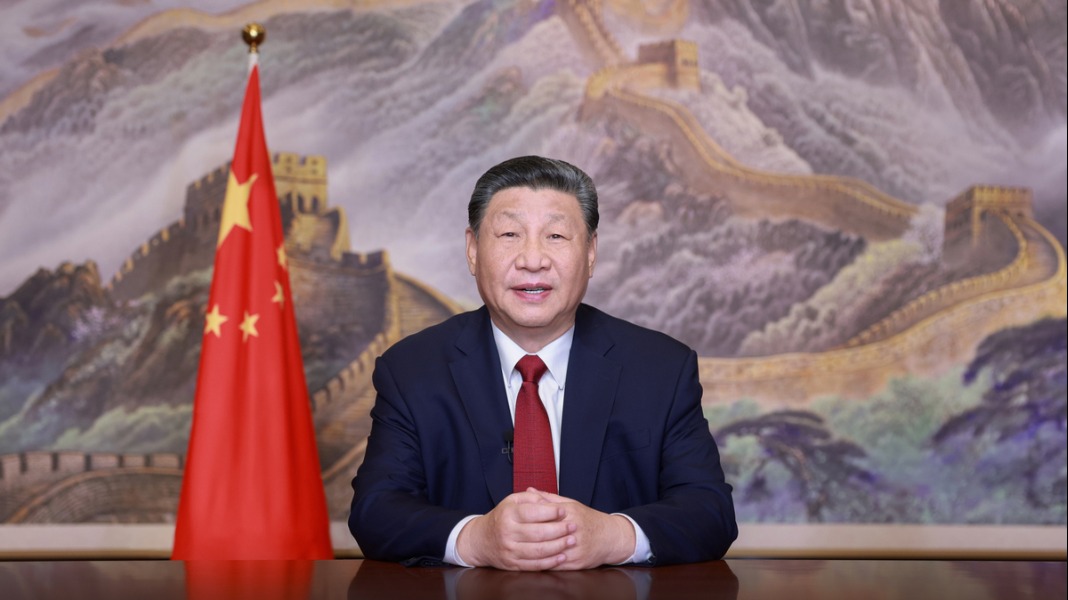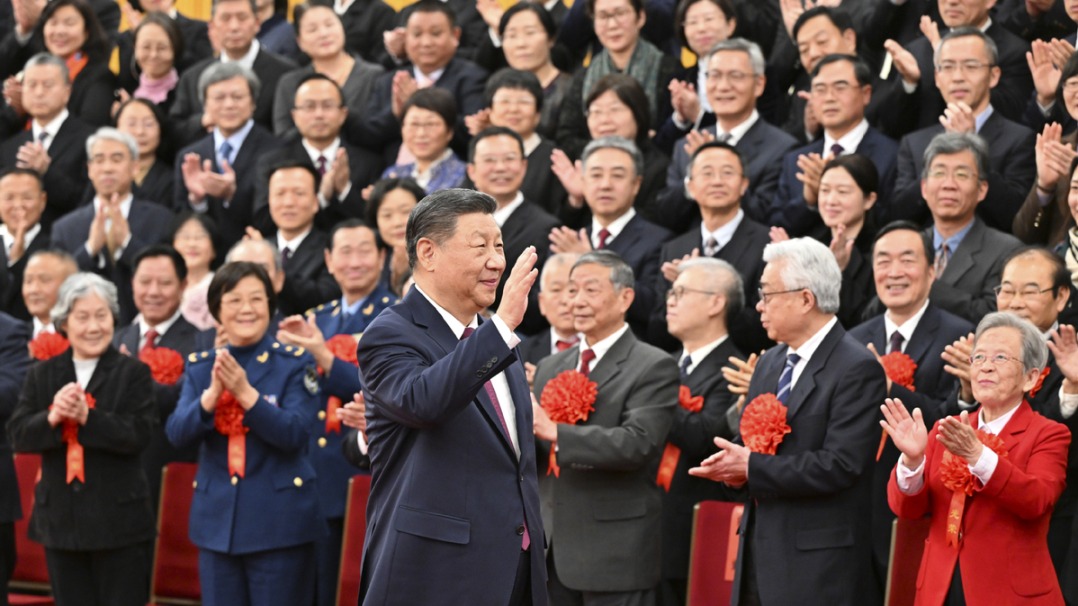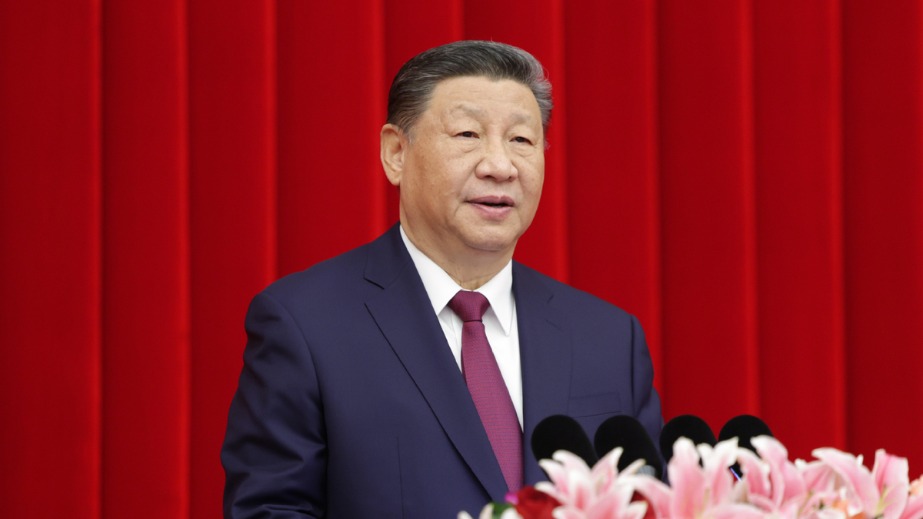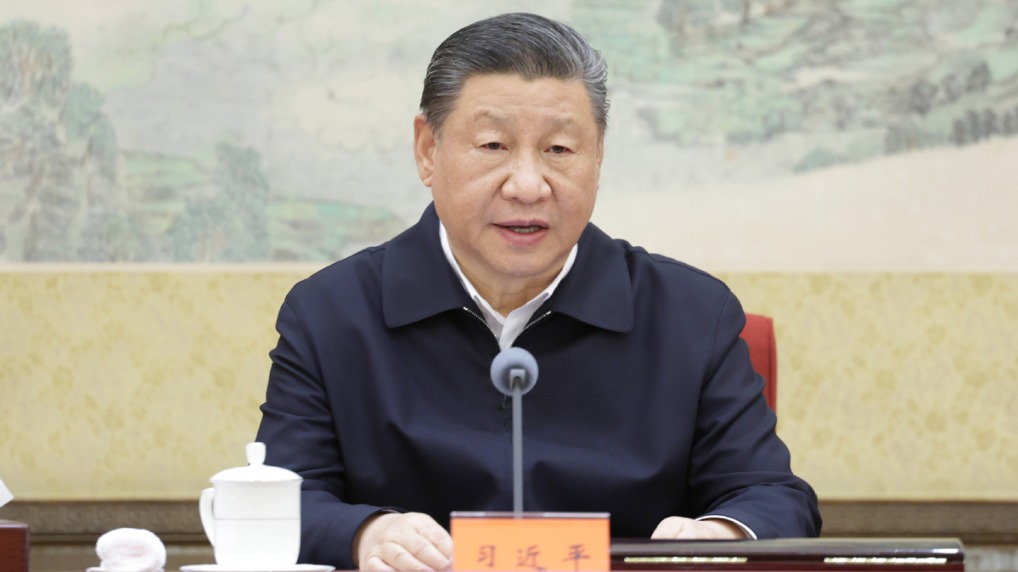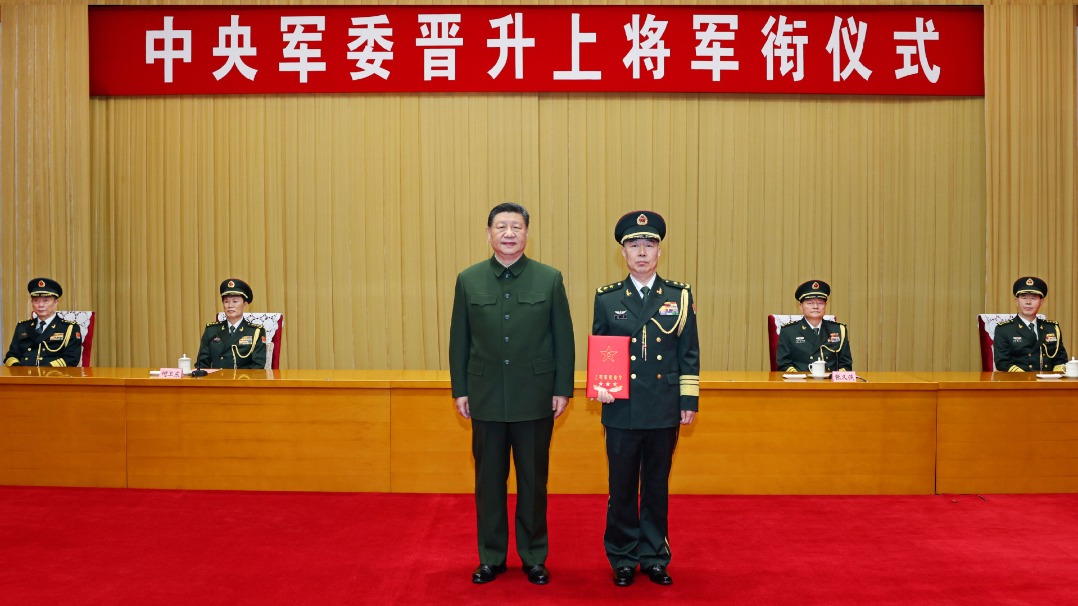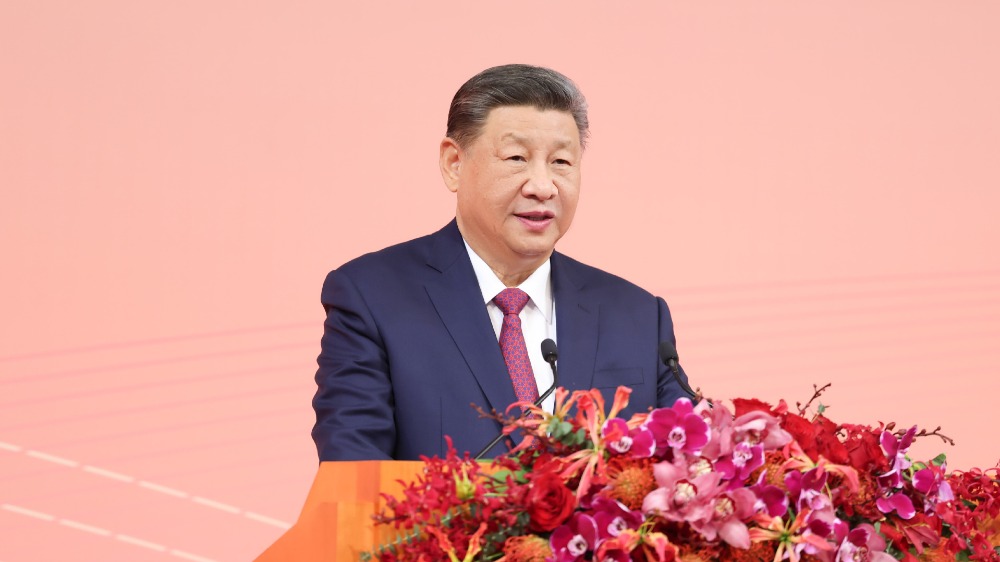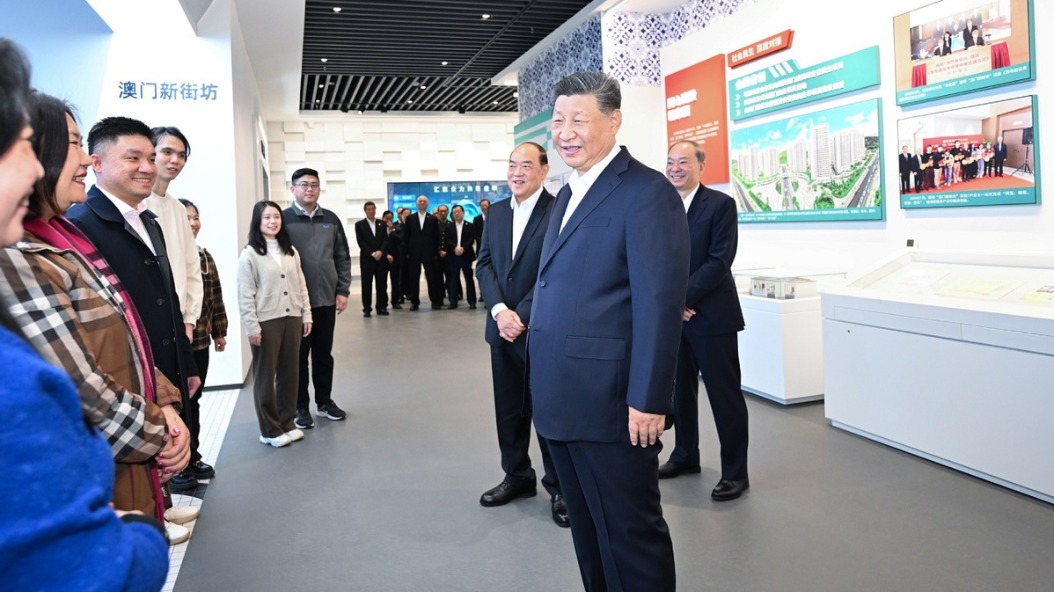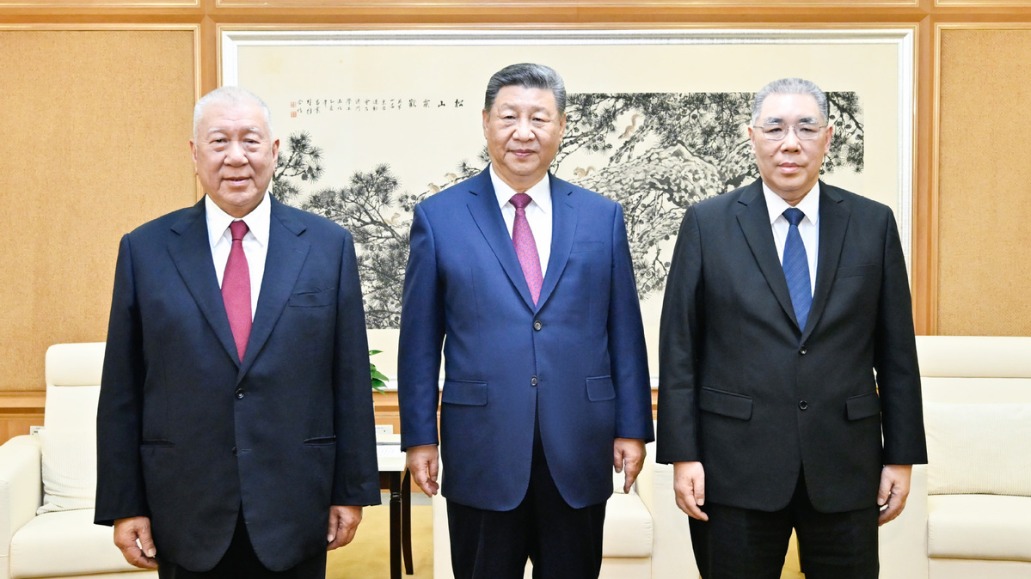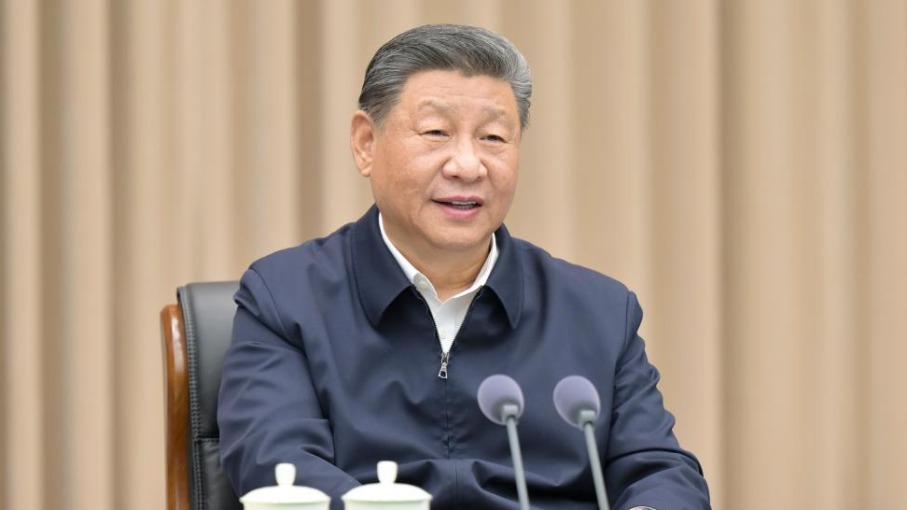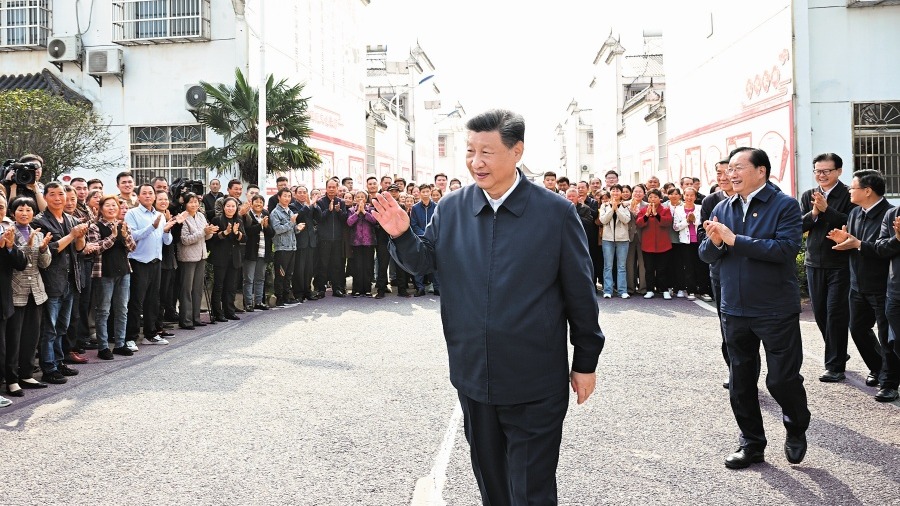
- Full text: President Xi Jinping's address at the meeting celebrating the 25th anniversary of Macao's return to the motherland and the inaugural ceremony of the sixth-term government of the Macao SAR
- Full text: Chinese President Xi Jinping's speech at welcoming dinner hosted by Macao SAR government on eve of 25th anniversary of Macao's return to motherland
- Xi's article on advancing Party's self-reform to be published
- Xi's article on upholding fundamental principles, breaking new ground to be published
- Full Text: Address by Chinese President Xi Jinping at Session II of 19th G20 Summit
- Full Text: Address by Chinese President Xi Jinping at Session I of 19th G20 Summit
- Full Text of Chinese president's signed article in Brazilian media
- Xi: 'Tear down the walls' impeding trade, tech
- Full Text: Address by Chinese President Xi Jinping at 31st APEC Economic Leaders' Meeting
- Full Text of Chinese president's written speech at APEC CEO Summit
MACAO -- President Xi Jinping on Friday delivered an address at the meeting celebrating the 25th anniversary of Macao's return to the motherland and the inaugural ceremony of the sixth-term government of the Macao Special Administrative Region (SAR).
Address at the Meeting Celebrating the 25th Anniversary of Macao's Return to the Motherland and the Inaugural Ceremony of the Sixth-Term Government of the Macao Special Administrative Region
December 20, 2024
Xi Jinping
My Fellow Chinese,
Dear Friends,
Today, we are meeting here on this solemn occasion to celebrate the 25th anniversary of Macao's return to the motherland and to hold the inauguration of the sixth-term government of the Macao Special Administrative Region (SAR). At the outset, on behalf of the Central Government and people of all ethnic groups across China, I wish to extend cordial greetings to all Macao residents. I extend warm congratulations to Mr. Sam Hou Fai, the newly inaugurated sixth-term Chief Executive of the Macao SAR, and to principal officials and members of the Executive Council of the sixth-term Macao SAR government! I also express heartfelt appreciation to all fellow Chinese, both at home and overseas, and foreign friends for their longstanding commitment to and support for the cause of One Country, Two Systems and Macao's prosperity, stability and development!
Macao is a shining pearl on the coast of the South China Sea and a treasured place of the great motherland. It was from here that the first group of Chinese students went to study overseas. It was here that many Chinese classics were translated into foreign languages and introduced to the West. It was also through Macao that a lot of Western modern science, technology and culture were introduced to the Chinese mainland. Across different stages of China's history, Macao has played an important role and made unique contributions.
My Fellow Chinese,
Dear Friends,
Over the past 25 years since Macao's return to the motherland, with the strong support of the Central Government and the mainland of the country, the Macao SAR Government has led the people of all walks of life in forging ahead in unity, achieving an enormous success in advancing the cause of One Country, Two Systems with distinctive Macao features. Macao has undergone earthshaking transformation, and its international standing has increased significantly.
-- The systems for implementing the policy of One Country, Two Systems have kept improving, and national sovereignty, security and development interests have been effectively safeguarded.
The legal system and enforcement mechanisms for safeguarding national security are well in place in Macao. This ensures both the central authorities' overall jurisdiction over Macao and a high degree of law-based autonomy in the city. The executive, legislative and judicial bodies of Macao perform their respective functions and responsibilities. The executive-led system functions smoothly, and the constitutional order of the SAR, based on the Constitution and the Basic Law of the Macao SAR, is ensured. The principle of patriots administering Macao is fully implemented, Macao's democracy is improved, and Macao residents enjoy more extensive rights and freedoms than in any other time in history. The political and social foundation of the policy of One Country, Two Systems has been further consolidated.
-- Economic and social development has seen a historic leap, and residents enjoy a much stronger sense of gain, happiness and security. Macao has pursued economic growth and development with unremitting efforts. It has improved the city's business environment, boosted the law-based, healthy and orderly development of the gaming industry, and promoted economic diversification. Macao withstood the challenging tests of the SARS epidemic, the international financial crisis and the COVID-19 pandemic, and it has maintained the momentum of long-term steady development. In 2023, Macao's GDP was seven times that of its pre-return period, and its per capita GDP was among the highest in the world. Macao has taken the initiative to integrate into the overall national development. It has actively participated in high-quality Belt and Road cooperation and the development of the Guangdong-Hong Kong-Macao Greater Bay Area, and it has made solid gains in building the Guangdong-Macao In-Depth Cooperation Zone in Hengqin. All this has greatly expanded the space for its development. Macao exercises people-centered governance. It has made remarkable progress in employment, housing, education, medical services, social security and other social programs, and put in place a system of social security that covers the entire cycle of life and all areas of life. As a result, Macao has maintained its long-term social harmony and stability.
-- Macao has continuously expanded external cooperation and its development position as "One Center, One Platform, One Base" has grown steadily. Macao maintains stable economic and trade ties with over 120 countries and territories, and it is a member of over 190 international organizations and institutions. Many foreign investors do business in Macao, contribute to its development and share in the fruits of its growth. As the only place in the world with both Chinese and Portuguese as its official languages, Macao is an important platform for promoting business ties between China and Portuguese-speaking countries. The Historic Center of Macao, a World Heritage site full of attractions, draws tourists from both the country and around the world. Reputed as a city of good food, rich culture, and festive events, Macao also boasts signature activities including the Macao Grand Prix and the Macao International Music Festival. It is a city where cultures and arts from across the world mingle. Macao stands out as a base for cultural exchanges and cooperation between China and the world; it is a living example of harmonious coexistence and integrated development of different civilizations.
My Fellow Chinese,
Dear Friends,
The great achievements of Macao since its return to the motherland have proven to the world that the cause of One Country, Two Systems, with its distinctive institutional strengths and strong vitality, is a good system that sustains the long-term prosperity and stability of Hong Kong and Macao. It is a good system that facilitates endeavors to build China into a great country and achieve national rejuvenation, and it is a good system for ensuring peaceful coexistence and mutual benefit between different social systems. So we must stay committed to this cause. The values embodied in the cause of One Country, Two Systems, namely, peace, inclusiveness, openness and sharing, are relevant to not only China but also the whole world. These values should be cherished by us all.
Developments in Hong Kong and Macao since their return to the motherland tell us that to sustain the long-term prosperity and stability of Hong Kong and Macao and further advance the cause of One Country, Two Systems, it is imperative to observe the following four principles. First, we should stay committed to the fundamental policy of One Country and fully deliver the benefits of Two Systems. We should place our country's sovereignty, security and development interests above everything else; we should implement the overall jurisdiction of the Central Authorities; and we should not deviate from this commitment under any circumstance. At the same time, we should respect the differences between the two systems, fully ensure a high degree of autonomy of the two special administrative regions of Hong Kong and Macao, and continue to fully, faithfully and resolutely implement the policy of One Country, Two Systems, under which the people of Hong Kong administer Hong Kong and the people of Macao administer Macao, both with a high degree of autonomy.
We should see that this policy is not changed, deviated from, bent or distorted. Second, we should ensure high-standard security and pursue high-quality development. Security underpins development, and development, in turn, ensures security. We must remain firm in both safeguarding security and promoting development. We should cherish the hard-won peace and stability we enjoy today, focus our energy on growing the economy and pursuing development, and continue to create new growth drivers and build new strengths. Third, we should leverage the unique strengths of Hong Kong and Macao and reinforce their connectivity with both the mainland and the world. Hong Kong and Macao should be more open and inclusive, expand international linkages, and raise their global standing and appeal, so that the reputation of Hong Kong, China and Macao, China as international metropolises will grow stronger. Hong Kong and Macao should fully align themselves with the national development strategies, accelerate integration into China's overall national development, and better play their role as bridges in ushering in a new development paradigm. Fourth, we should carry forward our core values and boost inclusiveness and harmony. It is imperative to live by the core values of loving the country and Hong Kong and of loving the country and Macao, enhance exchanges and integration of diverse cultures, and rally full public support at home and abroad to create the greatest synergy in advancing the cause of One Country, Two Systems.
My Fellow Chinese,
Dear Friends,
The present and the near future constitute a critical period for our endeavor to build a great country and move toward national rejuvenation on all fronts through Chinese modernization, and we have entered a new stage in advancing the cause of One Country, Two Systems. In the new era, the cause of One Country, Two Systems aims to deliver better development for both Hong Kong and Macao and enable the two regions to further contribute to China's development and renewal of the Chinese nation. The new government of the Macao Special Administrative Region should rally and lead the people of all walks of life in Macao in seizing opportunities, pressing ahead with reform, shouldering responsibilities and making greater contributions. This entails further leveraging the institutional strength of One Country, Two Systems, and making new achievements in the high-quality advancement of the cause of One Country, Two Systems. Here, I wish to express four hopes for Macao.
First, Macao should endeavor to promote appropriate economic diversification. It should fully leverage its distinctive strengths and resource endowment, be clear about its role, focus on key sectors, improve development planning for relevant industries, and step up policy and funding support so as to cultivate internationally competitive new sectors. Efforts should be made to achieve greater economic synergy, more harmonized rules, and more efficient and convenient cross-boundary flow of various factors between Macao and the Guangdong-Macao In-Depth Cooperation Zone in Hengqin. Macao should focus on key areas, promote scaled development of its distinctive sectors, and launch landmark projects and programs that will have knock-on effects on other sectors. It should be noted that the Central Authorities' decision to develop Hengqin is aimed at promoting appropriate economic diversification in Macao and facilitating the life and work of Macao residents. This should be kept in mind, and sectors and projects that are not in line with this purpose should not be developed. Macao should more actively take part in the development of the Guangdong-Hong Kong-Macao Greater Bay Area, pool quality resources and deepen coordinated development. It is also important for Macao to advance integrated development of education, technology and talent and do more to attract and nurture talent of various types so as to turn itself into a magnet attracting high-caliber talent from across the world.
Second, Macao should endeavor to enhance governance as a special administrative region. Macao should, with a commitment to advancing law-based governance and shouldering responsibilities, better respond to the needs of its economic and social development, improve its institutions, laws and regulations, deepen public administration reform, improve organizational structure, update its approach to and improve its way of governance. It should strengthen coordination at the macro level, and foster a well-functioning and effective service-oriented government, so as to unleash the tremendous vitality and development potential of the society. Macao should improve mechanisms that advise on public policies to increase the level of sound, democratic and law-based decision-making. Macao should strengthen coordinated lawmaking mechanism between the government and the Legislative Assembly. It should strictly exercise fair administration of justice, improve the judicial system, enhance judicial efficiency, and uphold the rule of law. Macao should advance reform of its civil service management system, strengthen its governance team, and improve the system for integrity management and oversight.
Third, Macao should endeavor to build itself into a platform for higher-standard opening up. With its development position as "One Center, One Platform, One Base," Macao should enhance mechanisms through which it can better play its role in China's opening up, take steps to align with major national strategies and continue to enhance its global competitiveness. It should further step up two-way opening, facilitate all-round mutually-beneficial cooperation with Portuguese-speaking countries, play an active role in high-quality Belt and Road cooperation, make more friends across the world, and act as an important bridge for China's high-standard opening up. Macao should continue to improve its business environment, improve its legal systems such as the civil and commercial laws, nurture and fire up its market vitality, and attract more international resources. As a place where Chinese and Western cultures merge, Macao should promote international people-to-people exchanges, better present Macao and China to the world, and turn the city into an important window of exchanges between Chinese and Western civilizations.
Fourth, Macao should endeavor to maintain social harmony and stability. Macao now enjoys overall stability, but the domestic and international environment is undergoing profound changes. Macao should be mindful of potential perils, guard against them, forestall risks, and firmly safeguard both national security and Macao's stability. It should see that government's governance, society's self-regulation and citizen's participation reinforce each other. It should guide and better regulate the development of social organizations, and consolidate the foundation of community-level governance. Macao should always put people above everything else, resolve the most practical and pressing problems that are of the greatest concern to them, create more and better opportunities for development, foster a fairer social environment, and make continuous efforts to meet people's expectation for a better life.
The young people are the hope and future of Macao. They are also a vibrant force in building Macao and building China. Over the last couple of days, I have met many young people in Macao. Some of them display talent of the governance of the SAR, some have made remarkable entrepreneurial achievements, some are brilliant teachers and researchers, and some are pursuing international careers. The Macao SAR Government and people should care about the young and create a better environment and conditions for them to bring out their best. To the young people in Macao, I hope you will keep the city and the motherland close to your heart, set ambitious goals, take solid steps, advance and carry forward the cause of One Country, Two Systems, and thus realize your potentials by fully engaging in endeavors to build a great motherland and a beautiful Macao.
My Fellow Chinese,
Dear Friends,
This year marks the 75th anniversary of the founding of the People's Republic of China. At its Third Plenary Session, the 20th Central Committee of the Communist Party of China made a systematic decision to further deepen reform comprehensively to advance Chinese modernization. The cause of building China into a great country is being advanced across the board, with bright prospects unfolding. The Chinese nation is marching toward its great rejuvenation in unstoppable strides. I am convinced that with the full, faithful and resolute implementation of the policy of One Country, Two Systems, with the concerted effort of the Macao SAR Government and all sectors of its society, and with the strong support of the great motherland, Macao will surely open up a new horizon and achieve new advances in development, and make even greater contribution to building a great country and moving toward national rejuvenation on all fronts through Chinese modernization!
Registration Number: 130349

